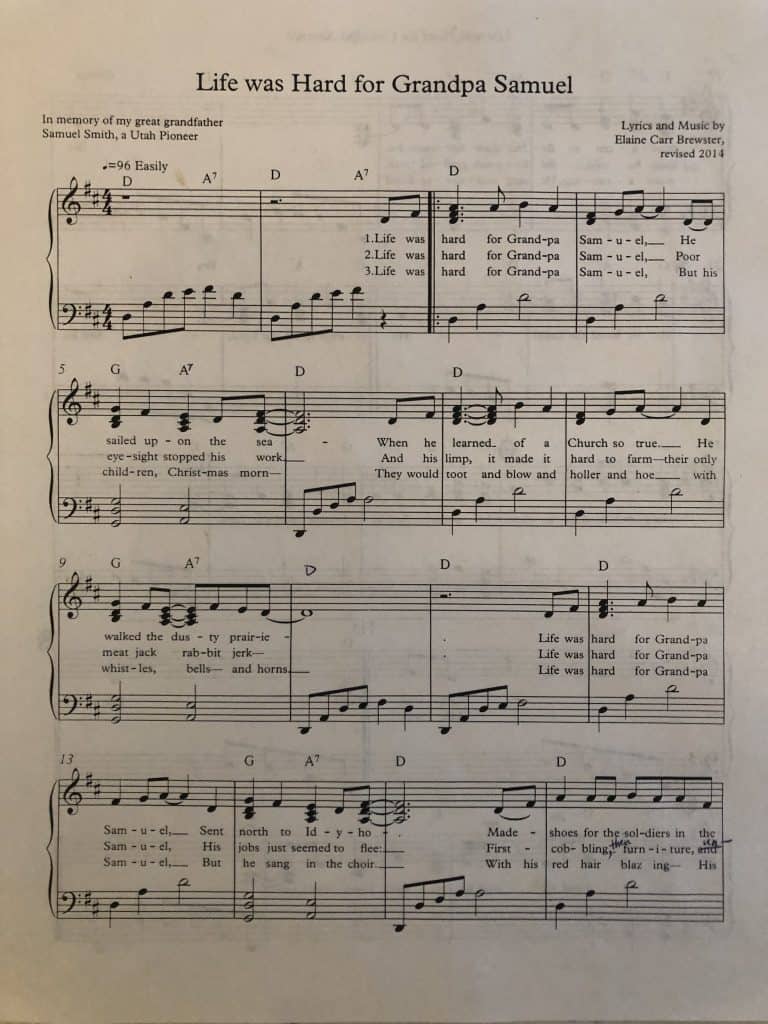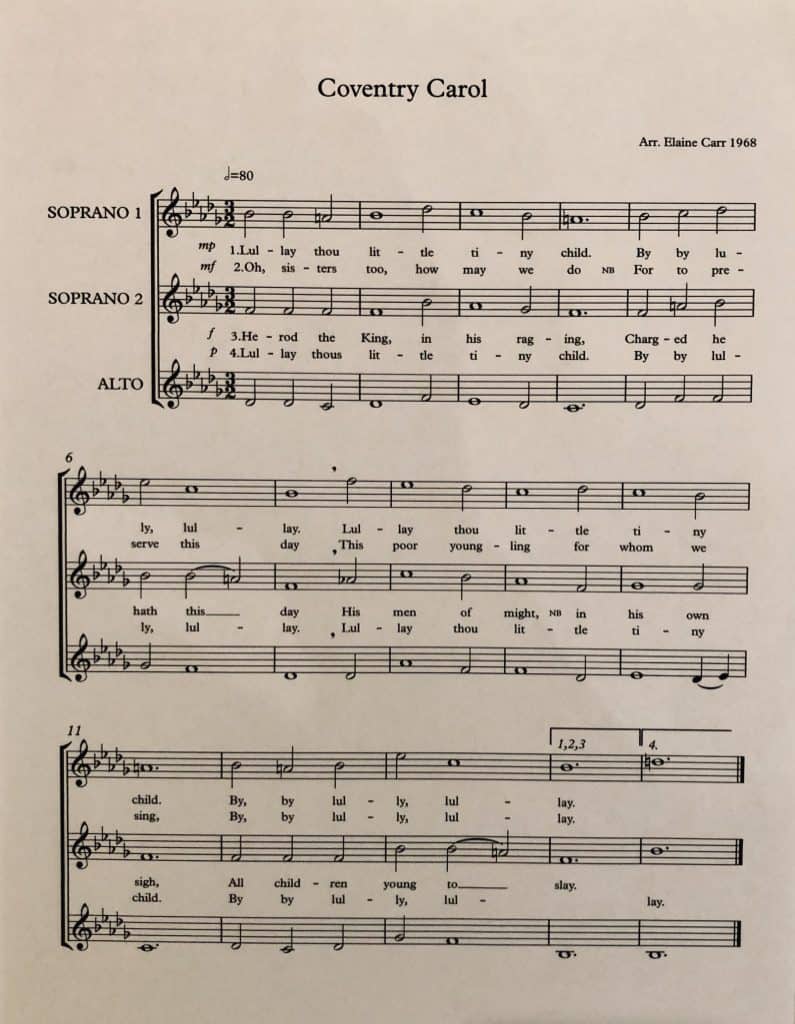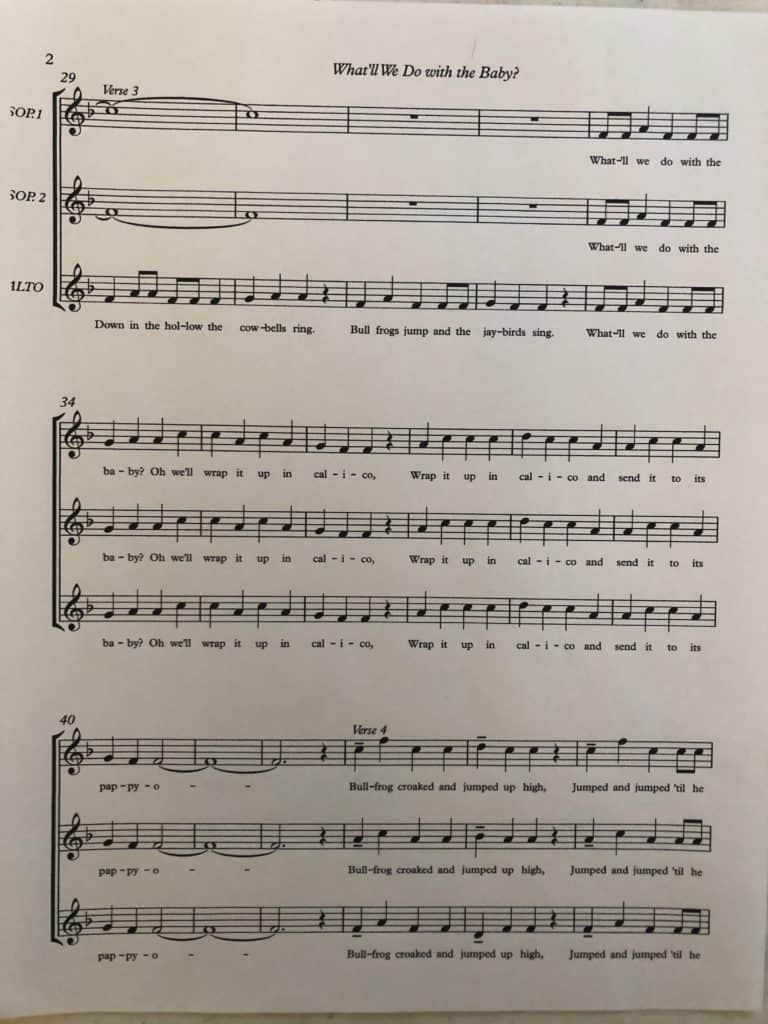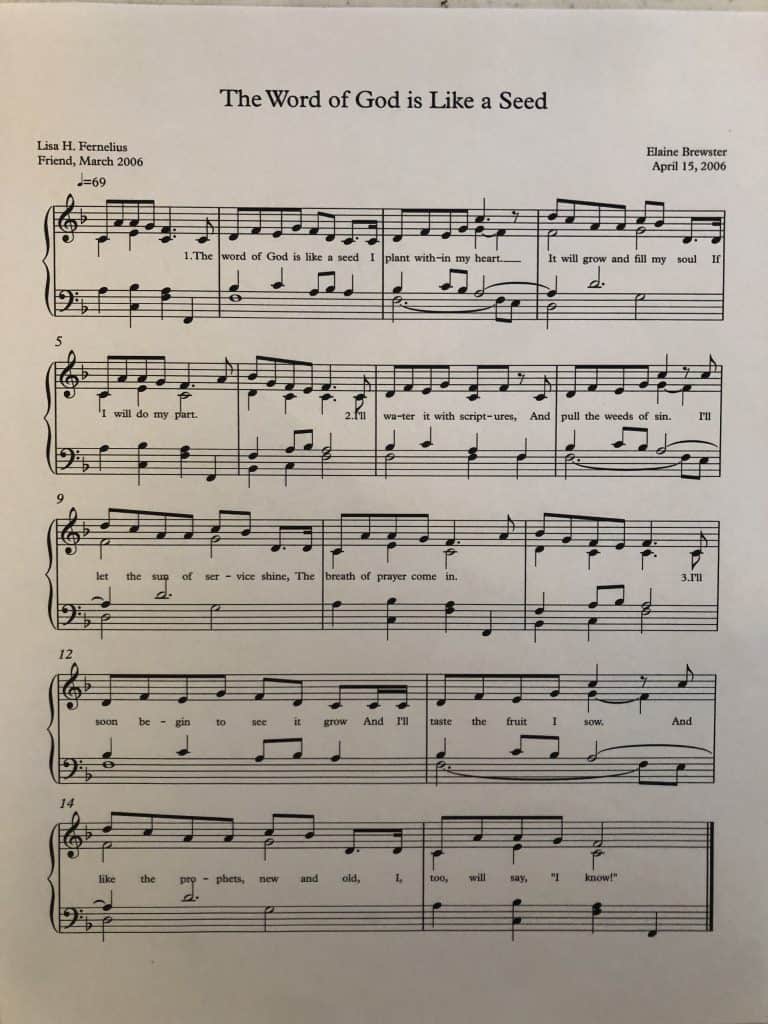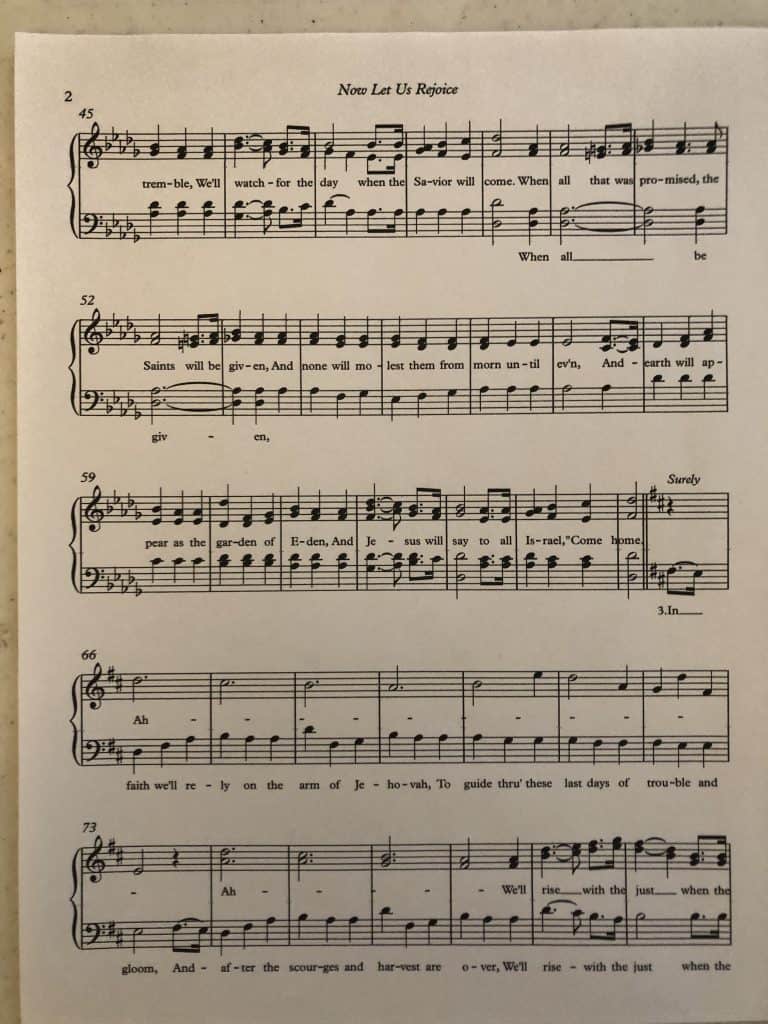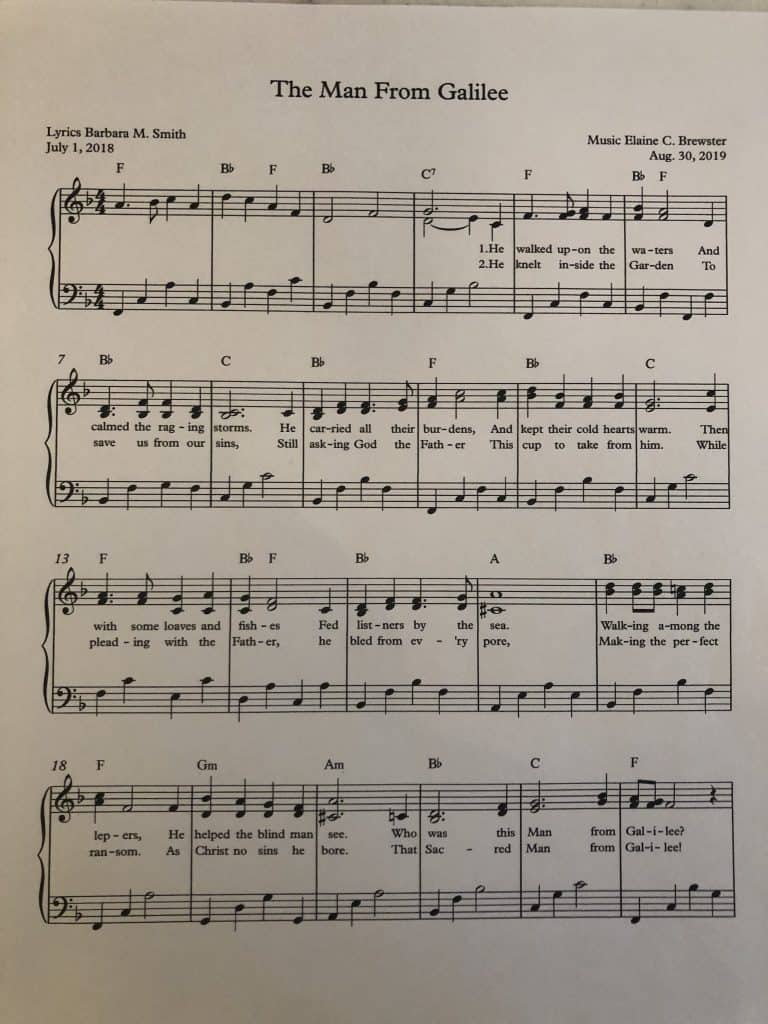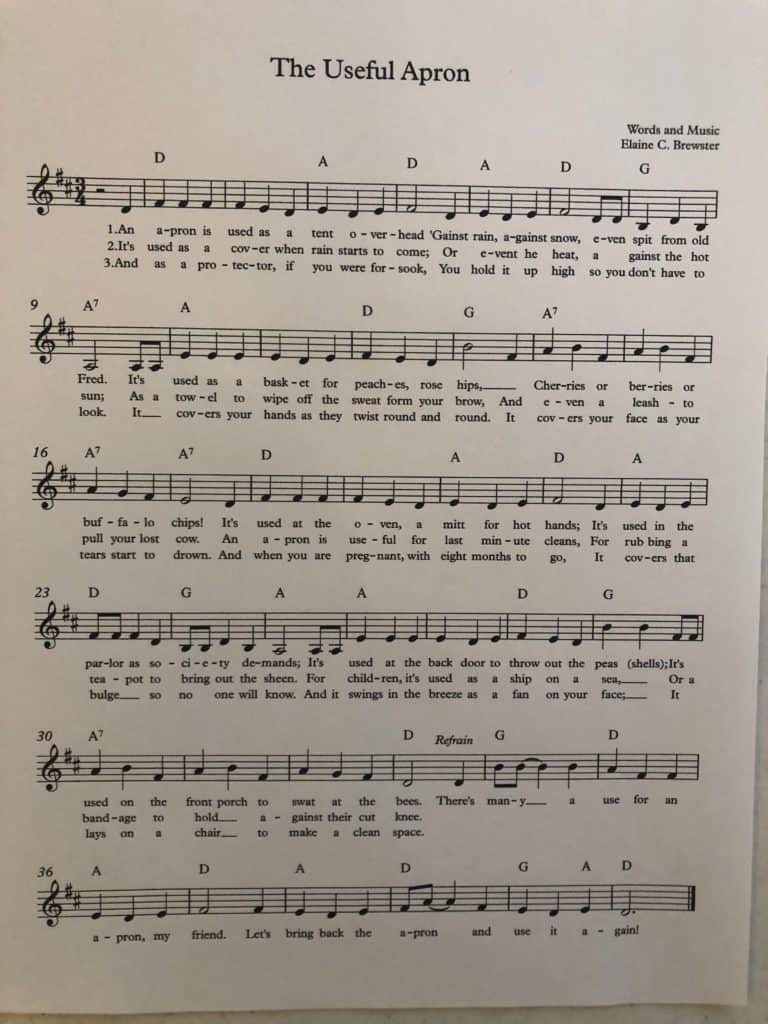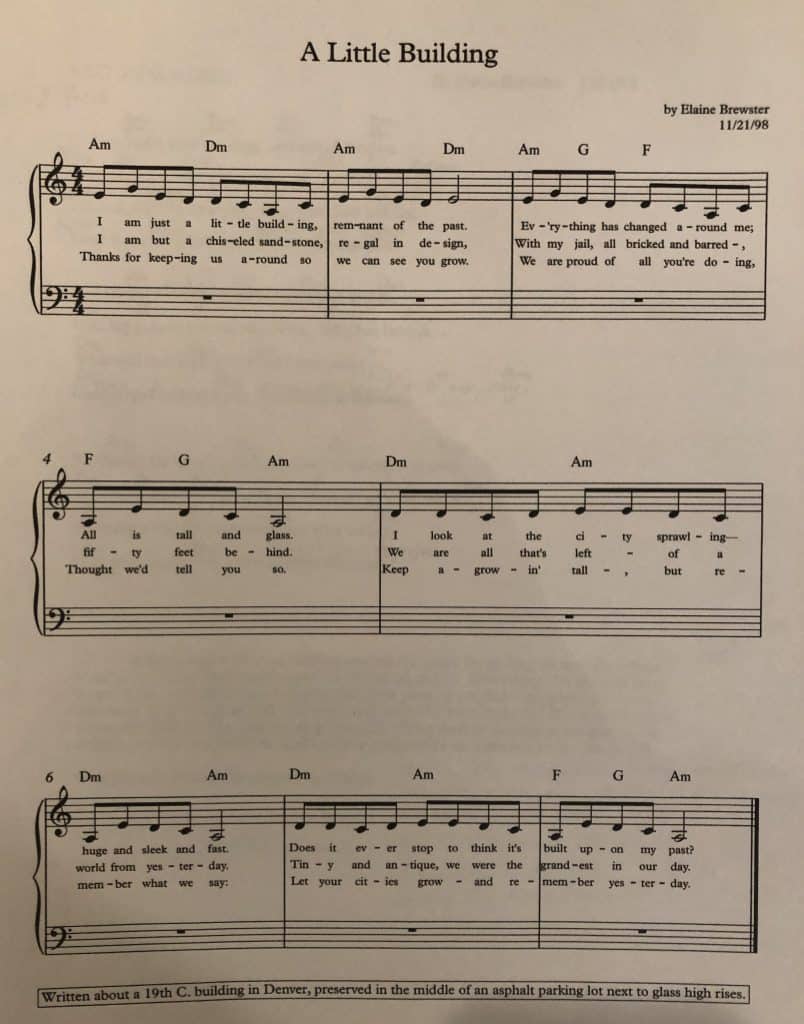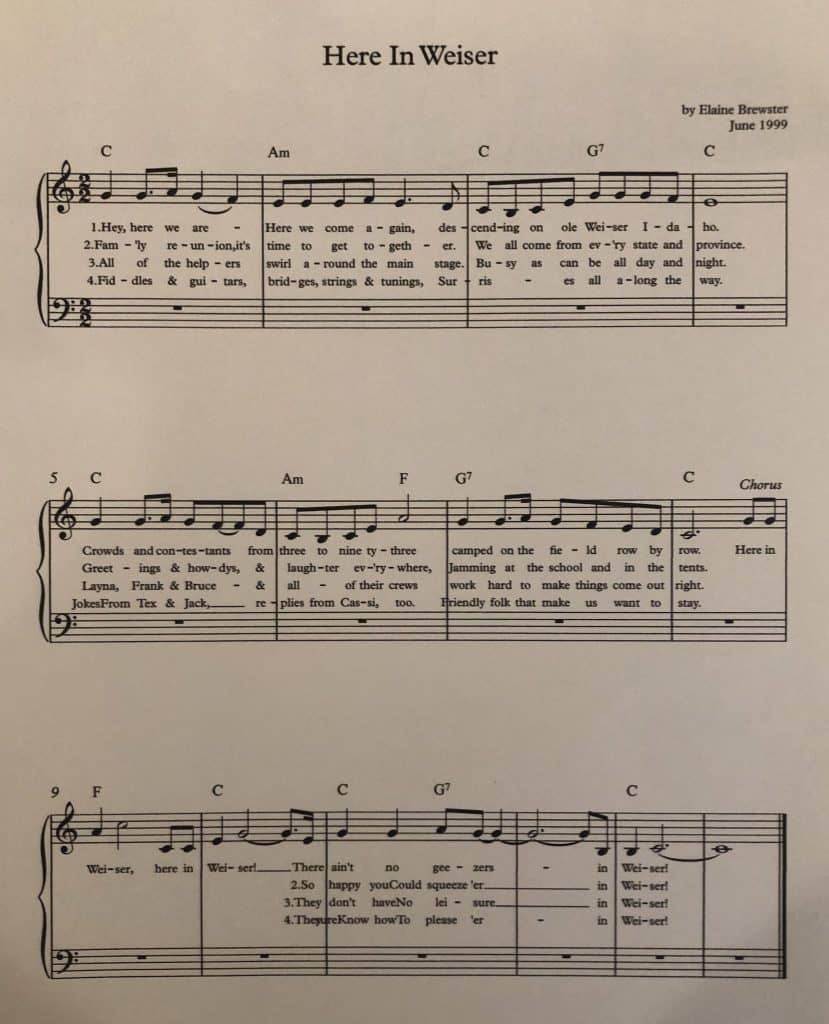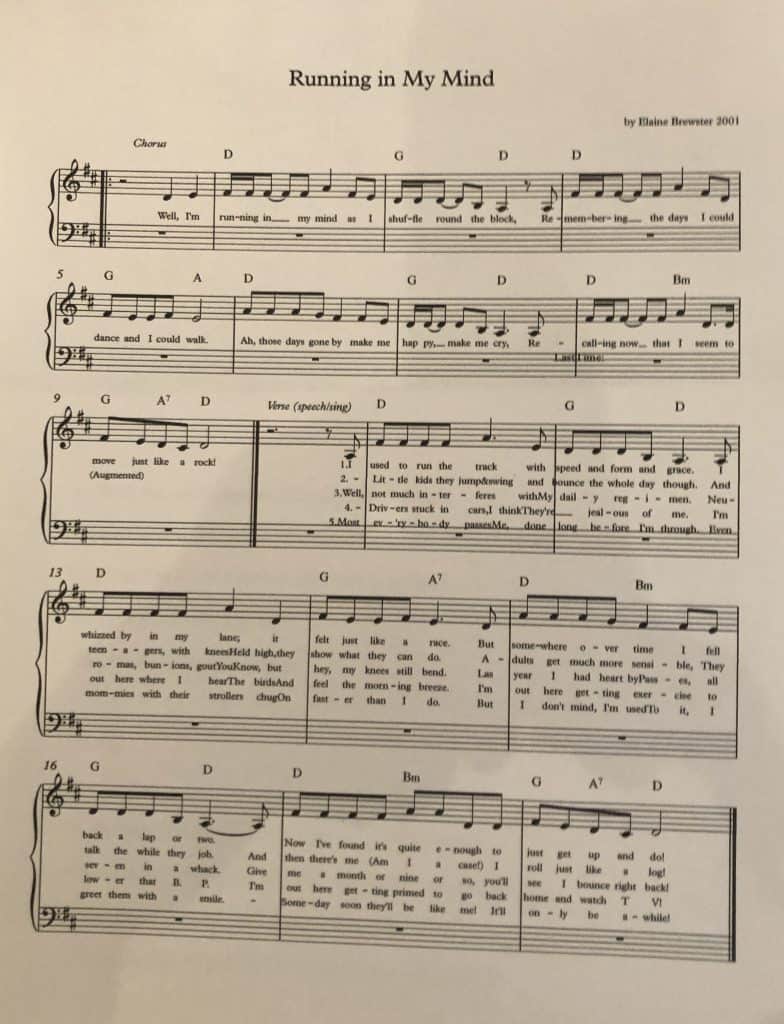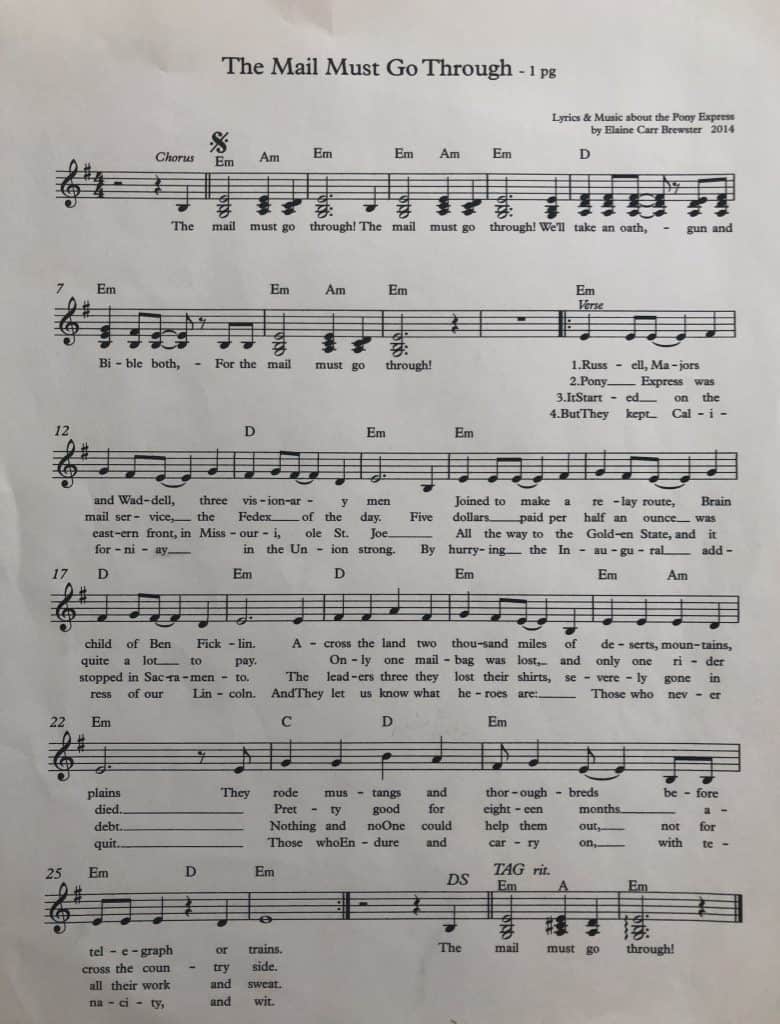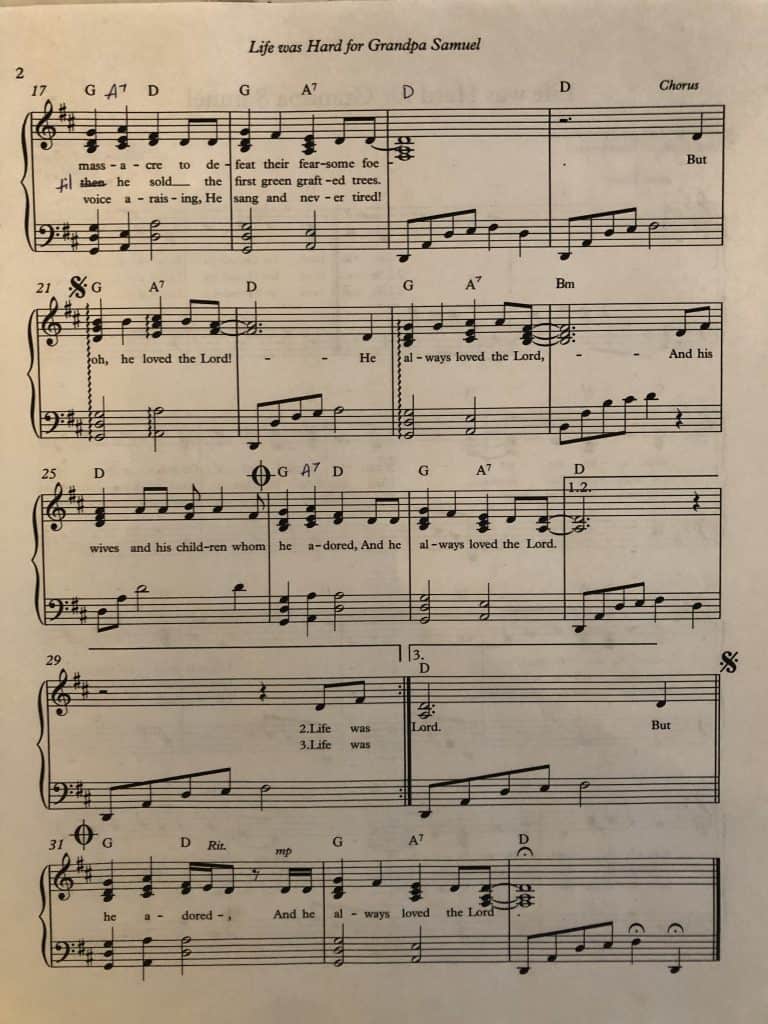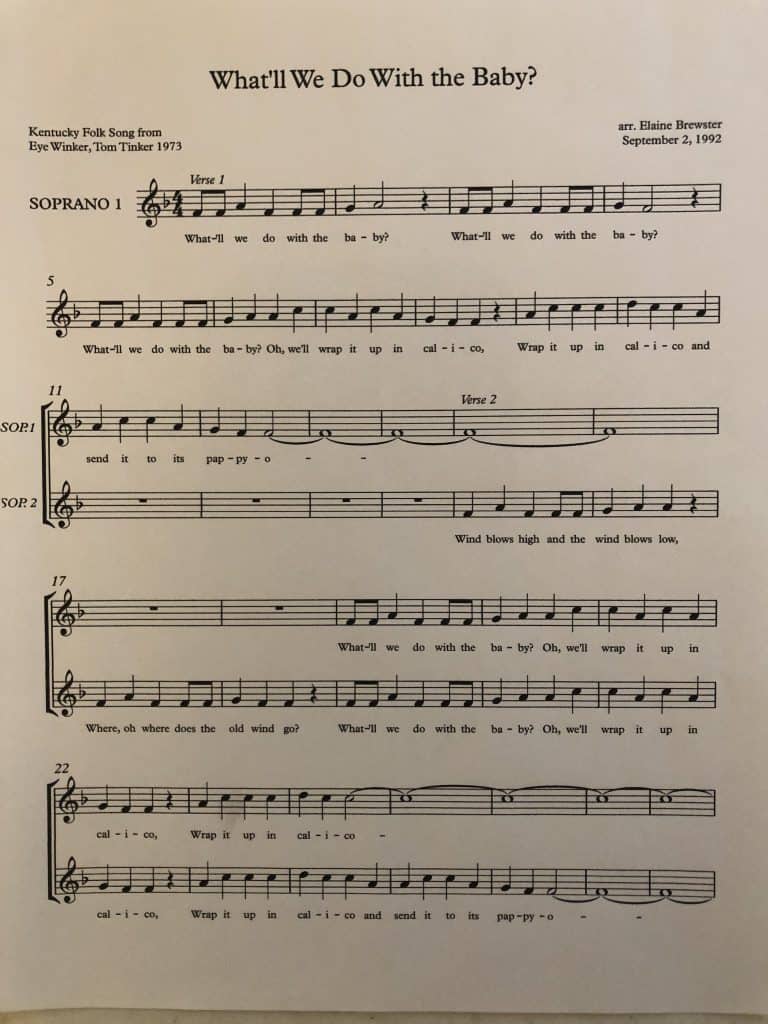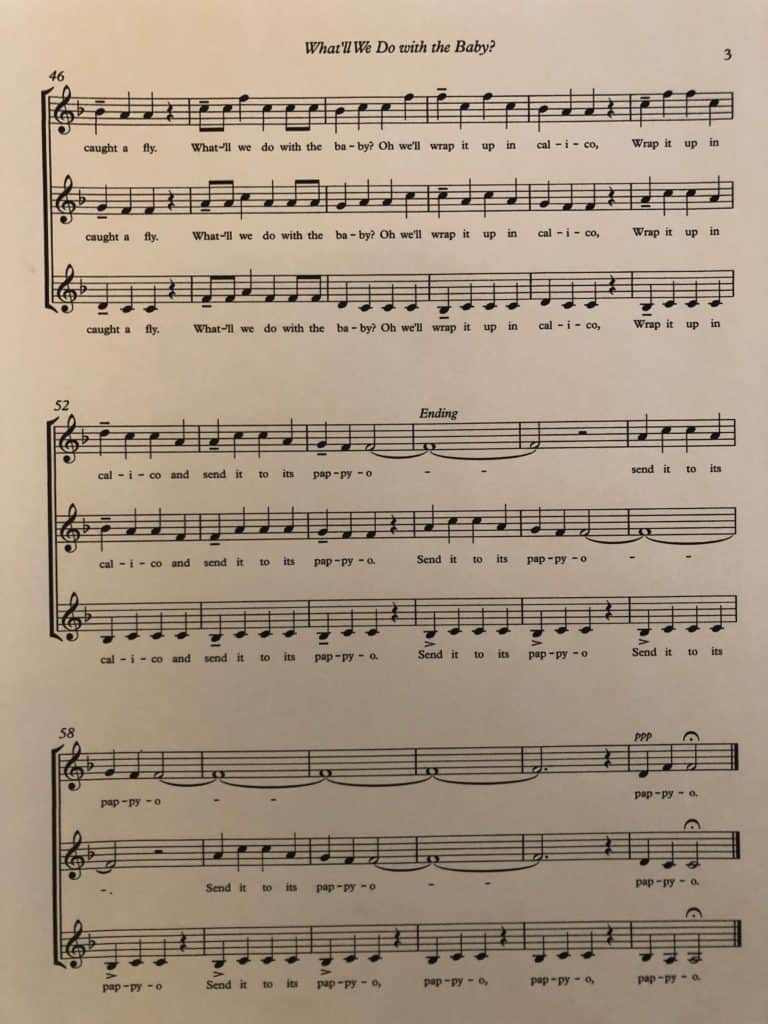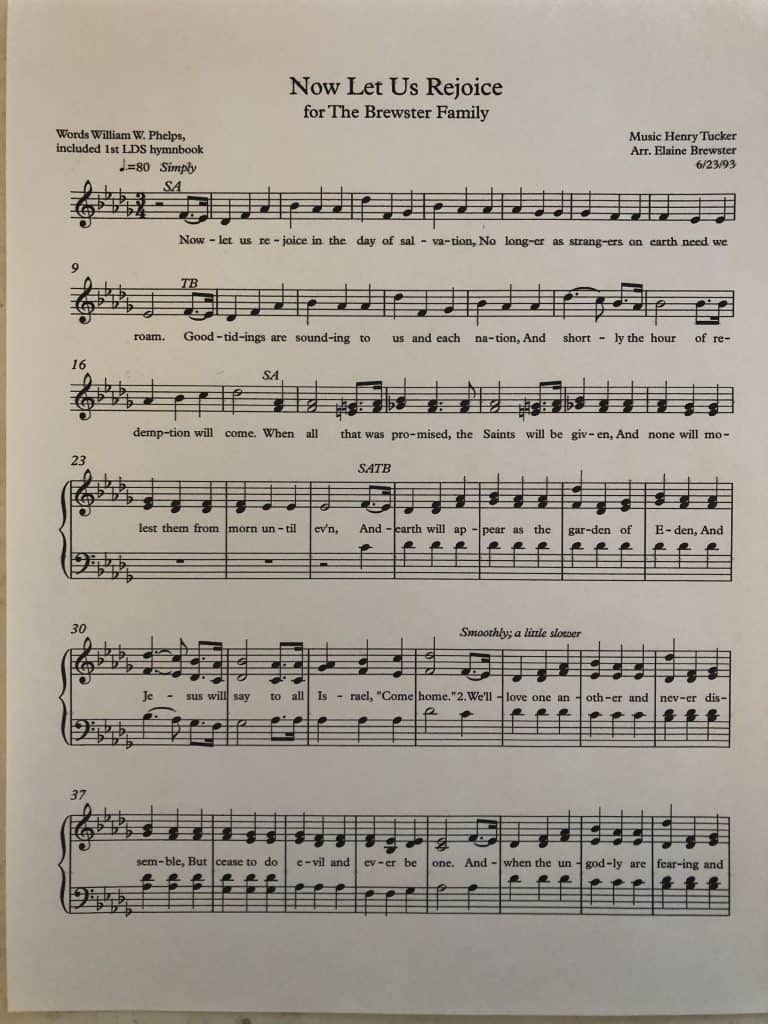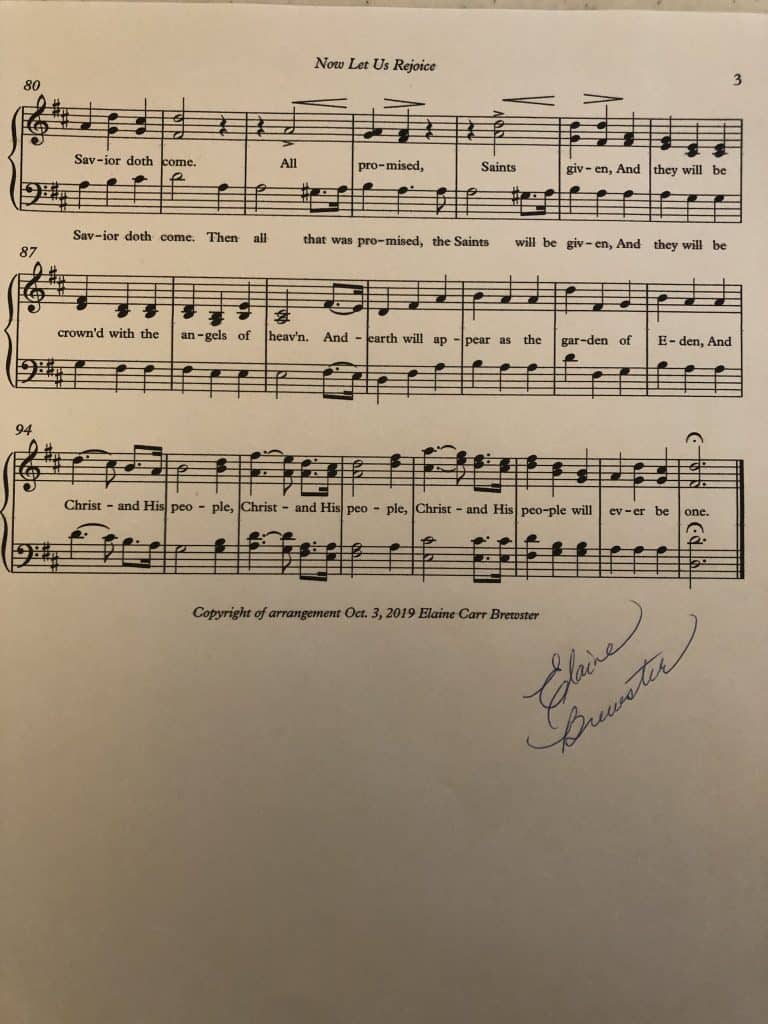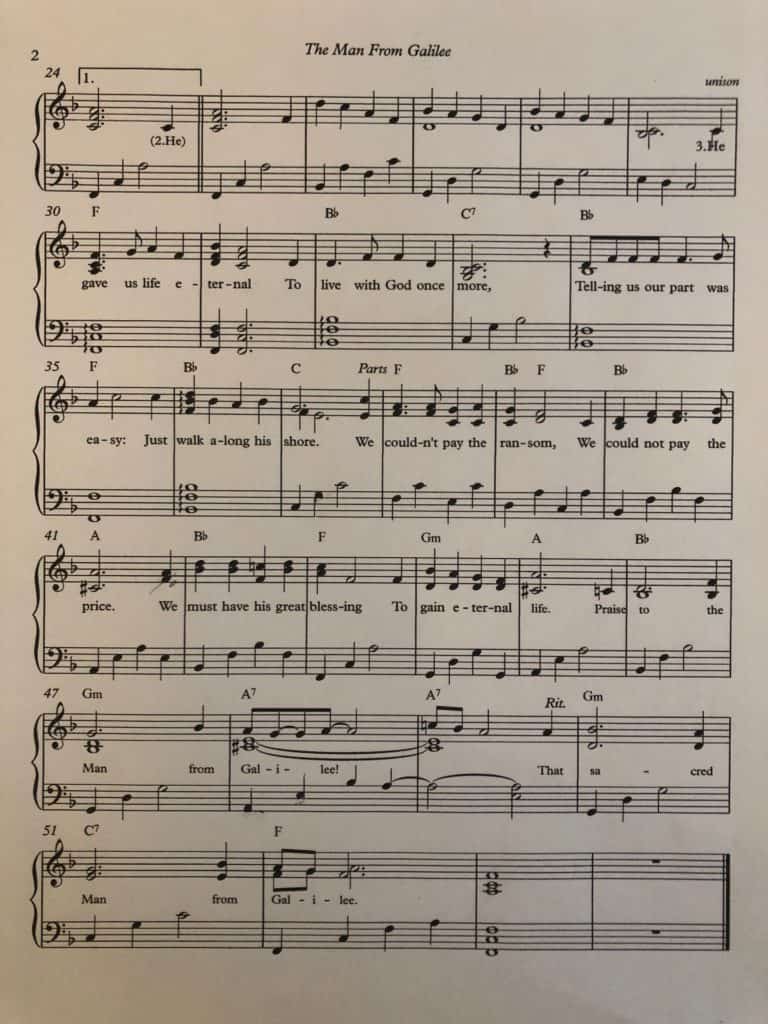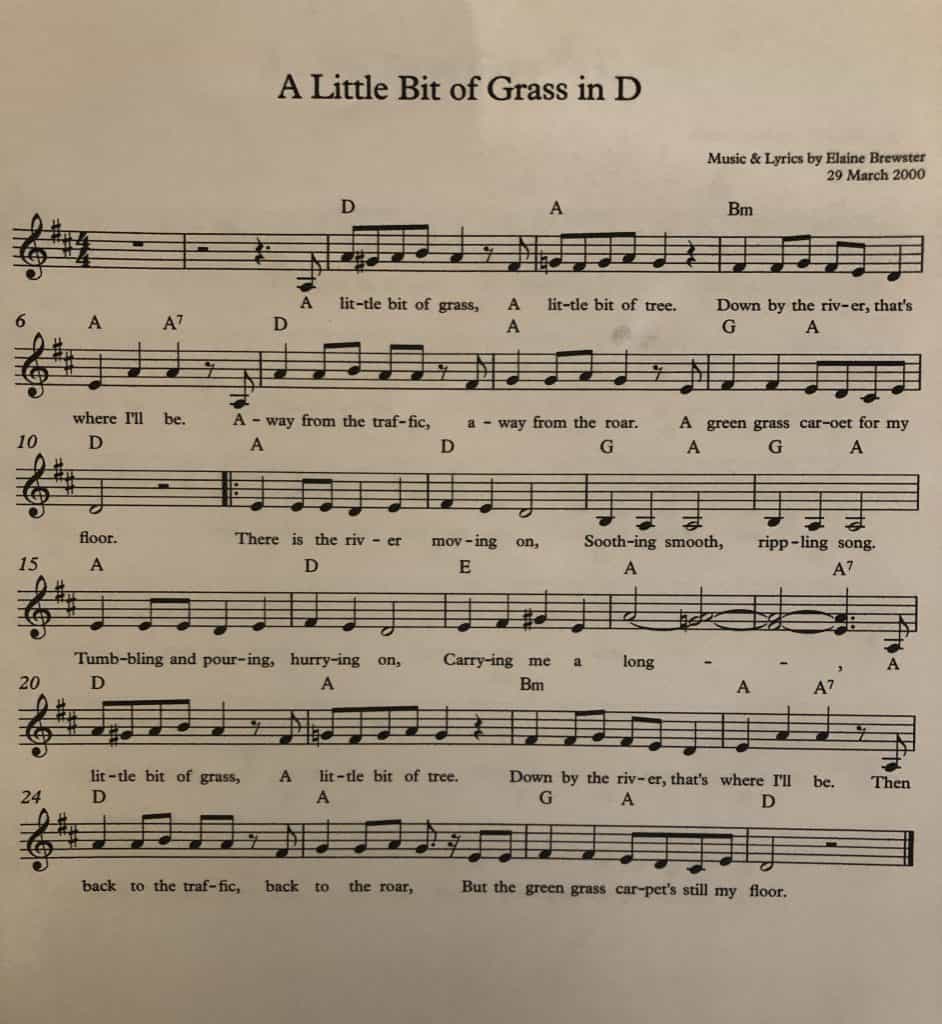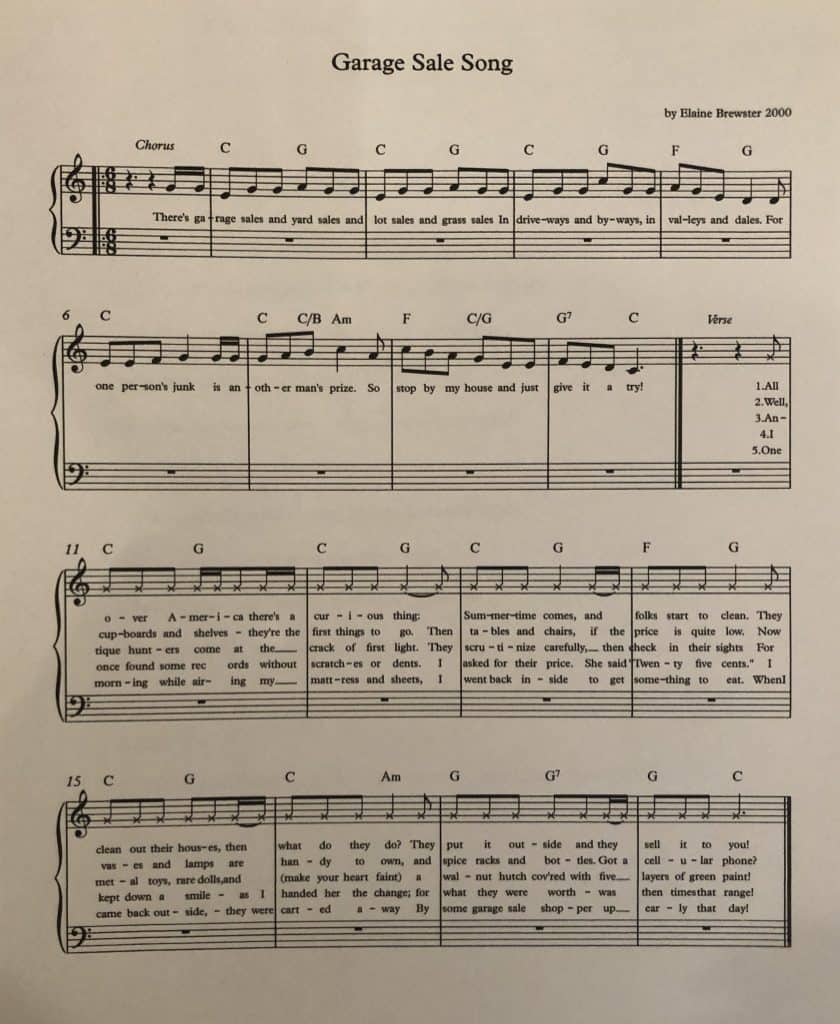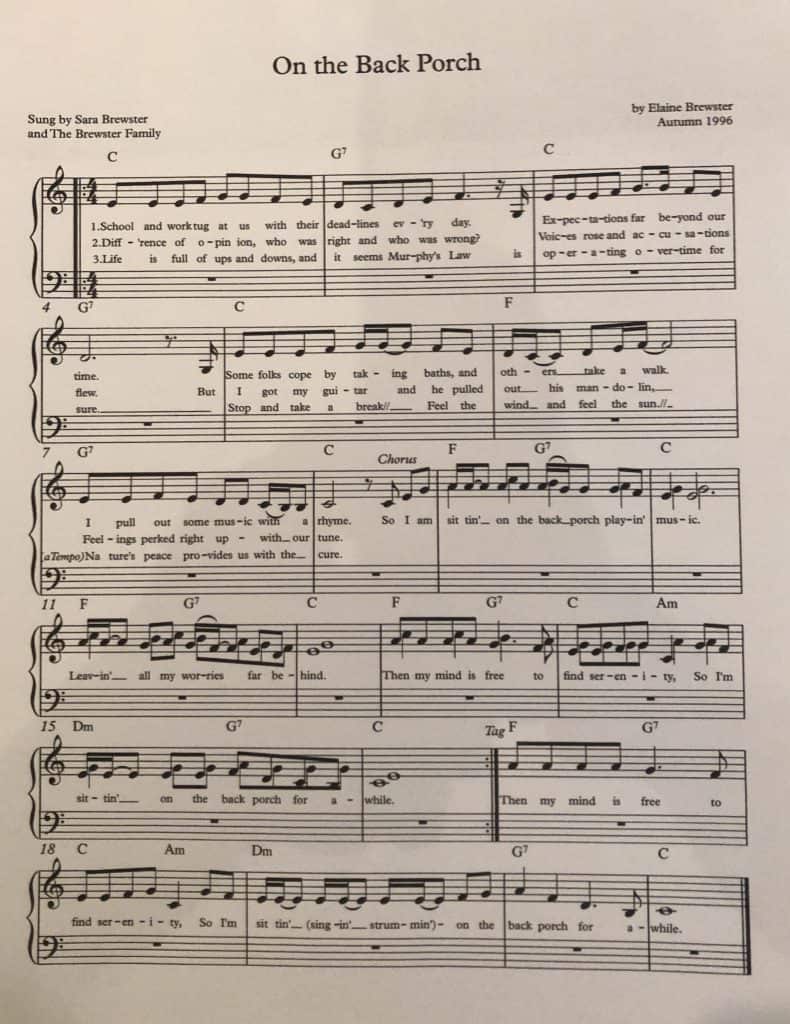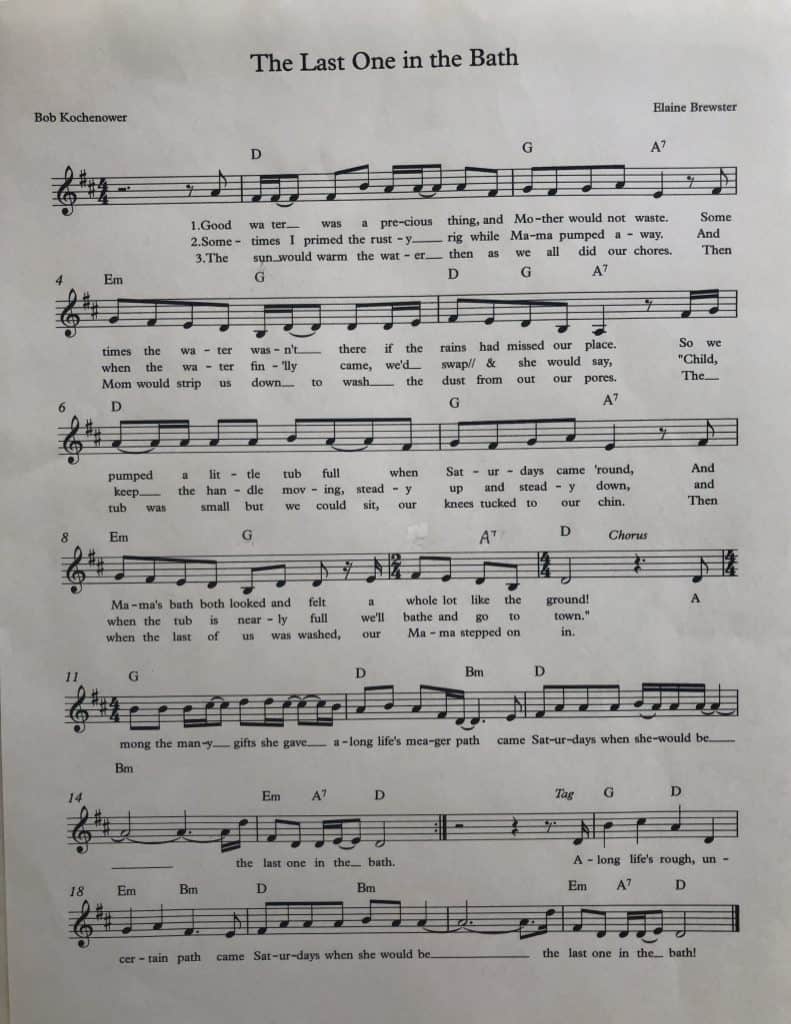
Test 123

“Throughout her career, Elaine Brewster has sung adfsd hoirs and music groups, beginning with a quartet as a young girl to being a first soprano in the Tabernacle Choir at Temple Square.

Her experience includes singing with the BYU Bach Choir and as a founding member of the Mormon Youth Symphony and Chorus. Each choir and ensemble Elaine joined enriched her journey, deepening her dedication to vocal performance and harmony. These experiences laid the foundation for her musical legacy, inspiring her teaching and performances today.”

Times and Seasons
There must be times and seasons for things in our lives. When I was a young girl, I would think up stories fast and furiously. I would grab a notebook and pencil and climb up into our walnut tree and write all these stories. I still have the notebook.
Then when I was a young mother and singing at a lot of concerts and clubs, I would think up new melodies. Melodies came thick and fast, like spring pollen on the wind. Often, I would stop whatever I was doing, run to the piano and write down the melody—the germ of a new song. But they came so easily and constantly that I thought they would happen forever. They didn’t. Now a new melody comes to me only occasionally, and believe me, I stop and write it down!
So now, instead of stories or melodies, I am having these little musings—pithy little thoughts that could be the germ of something. They must be coming for a reason. I am choosing to go with the flow and write them down. There must be some purpose in their emergence. Maybe their purpose is as a catalyst for you to think your own thoughts and create your own projects.
See more about the workings of the mind at ElaineBrewster.org> podcasts. Sophia DiMuccio www.youtube.com/watch?v=bZHMeJbgQBw and Michael DiMuccio www.youtube.com/watch?v=p0dcsaXnH3E.

And That Is Dying
I am standing upon the seashore.
A ship at my side spreads her white sails to the morning breeze and starts for the blue ocean.
She is an object of beauty and strength.
I stand and watch her until at length she hangs like a speck of white cloud
just where the sea and sky come to mingle with each other.
Then someone at my side says, “There, she is gone!” “Gone where?”
Gone from my sight. That is all. She is just as large in mast and hull and spar as she was when she left my side,
and she is just as able to bear her load of living freight to her destined port.
Her diminished size is in me, not in her.
And just at the moment when someone at my side says: “There, she is gone!”
there are other eyes watching her coming, and other voices ready to take up the glad shout:
“Here she comes!”
And that is dying.
-attributed to Henry van Dyke; Excerpt from Scott’s Choice page 257
Gain comfort in the distress of death on ElaineBrewster.org>Podcasts. Click HERE for past YouTube clips.
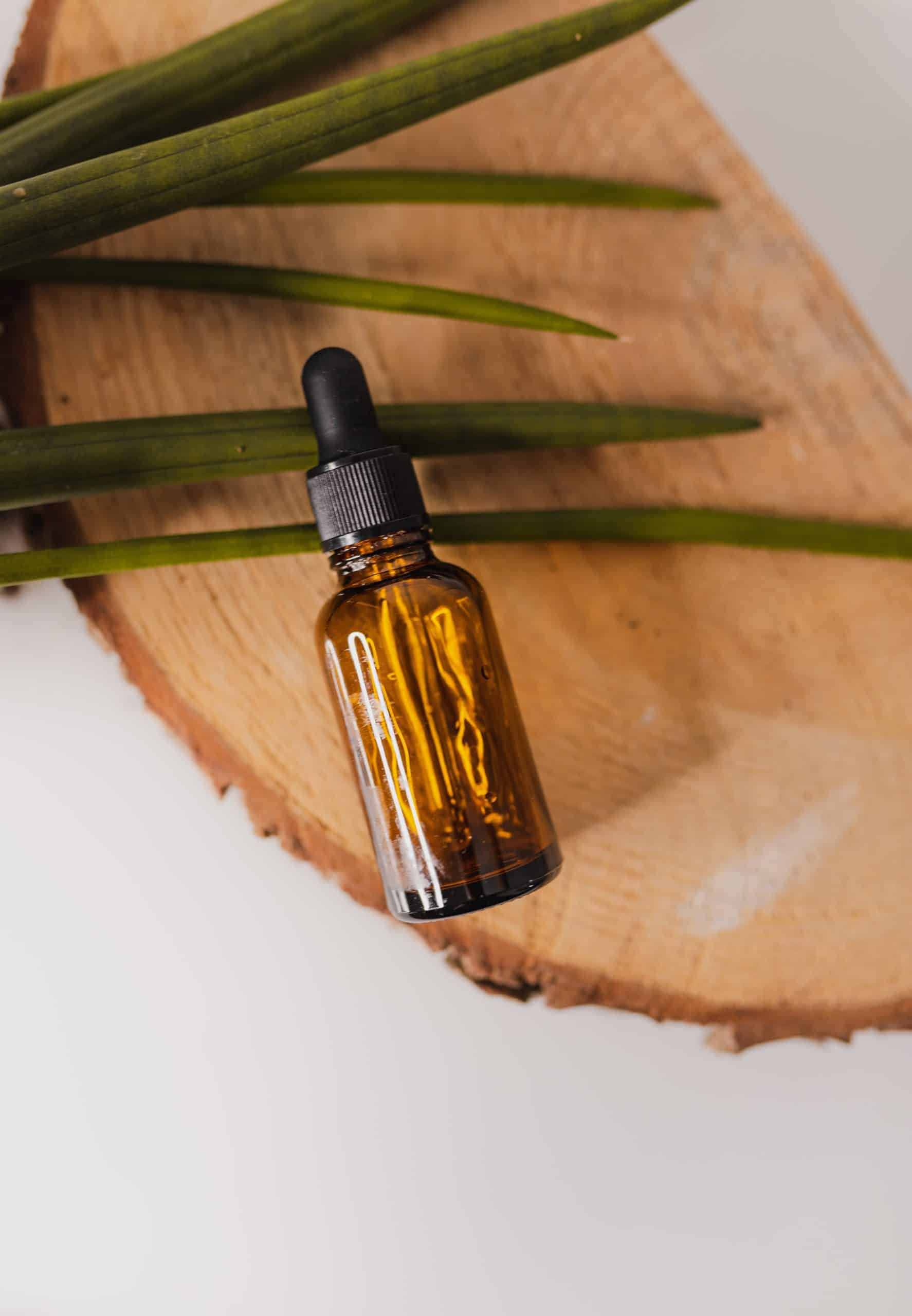
“Ideas in the Wild”
“Ideas in the Wild: Elaine Brewster is Sharing Her Holistic Journey to Heal Her Husband’s Cancer” is an article that has been published in Authority Magazine. You can read it HERE.
https://medium.com/authority-magazine/ideas-in-the-wild-elaine-brewster-is-sharing-her-holistic-journey-to-heal-her-husbands-cancer-30b198ec7810

“How Messages from God Guided Me During My Husband’s Cancer Battle”
“How Messages from God Guided Me During My Husband’s Cancer Battle” is an article that Elaine wrote. It is published on the Book Bites website. Check it out HERE.
https://medium.com/book-bites/how-messages-from-god-guided-me-during-my-husbands-cancer-battle-ffc36b48c130

Mind Body Ease: “All is Not Lost: How to Find Positivity and Hope While Battling Chronic Illness or Other Health Issues”
Here is a published article I wrote for Mind Body Ease. Check it out HERE:
https://www.mindbodyease.com/blog/all-is-not-lost-how-to-find-positivity-and-hope-while-battling-chronic-illness-or-other-health-issues/
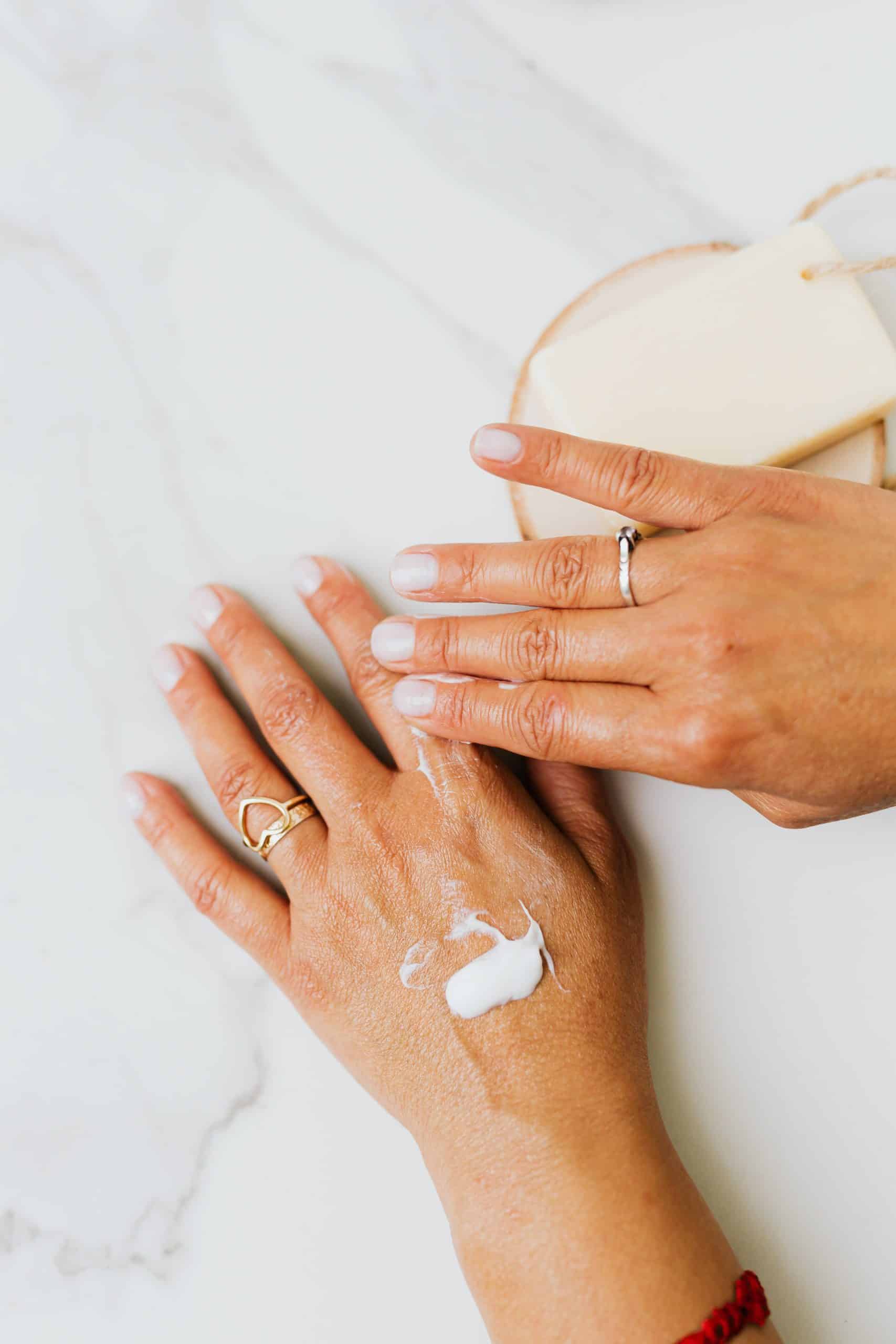
Wondering About the Lymph System?
Lymphologist Mike Bond admitted, “The lymphatic system was a mystery to me at one point until, kicking and screaming, I attended a training that turned out to be fascinating.” Here are some bullets he shared recently:
· The lymphatic system is the immune system. It’s a major player in keeping us 1)healthy, 2) free of inflammation and 3) free of disease.
· Blood is in vessels, cellular space is inside cells, and everything else is interstitial space.
· The lymphatic system gets rid of anything cells can’t use: crud, crap, debris and junk.
· Our cells use the food, and there are leftovers. What the body doesn’t use, the lymph system cleans up.
· The lymph system has a peristaltic action that brings everything up near the collar bone where it reenters the circulatory system and becomes a portion of the blood. This allows the liver and kidneys to process and reuse what the body can make sense of and refuse or eliminate what the body can’t make sense of.
· The lymph system is to your body what the oil filter is to the car; both need to stay clean to do their jobs.
· One study of Stanford medical students asked, ‘Out of 4 years, how much time did you study this system?’ The average was 15 minutes.
Find Mike’s whole presentation on ElaineBrewster.org > podcast March-4-2022
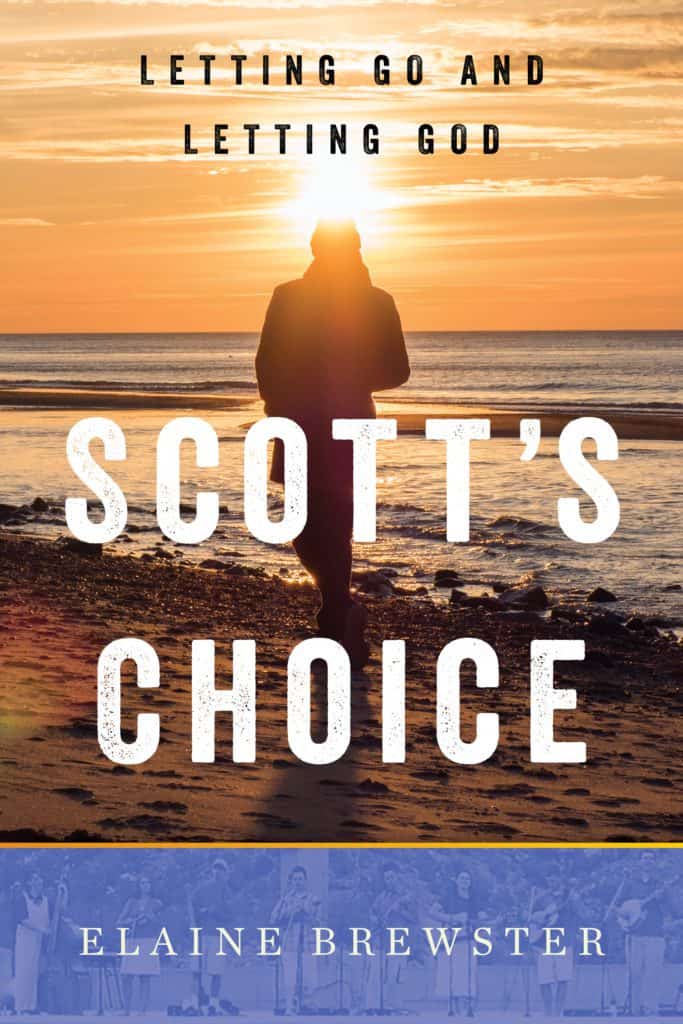
Author’s Hour: Scott’s Choice by Elaine Brewster
Author Hour did an interview with Elaine Brewster to have a conversation about the book and the journey of being a caregiver and learning about alternative medicine. Check it out HERE:
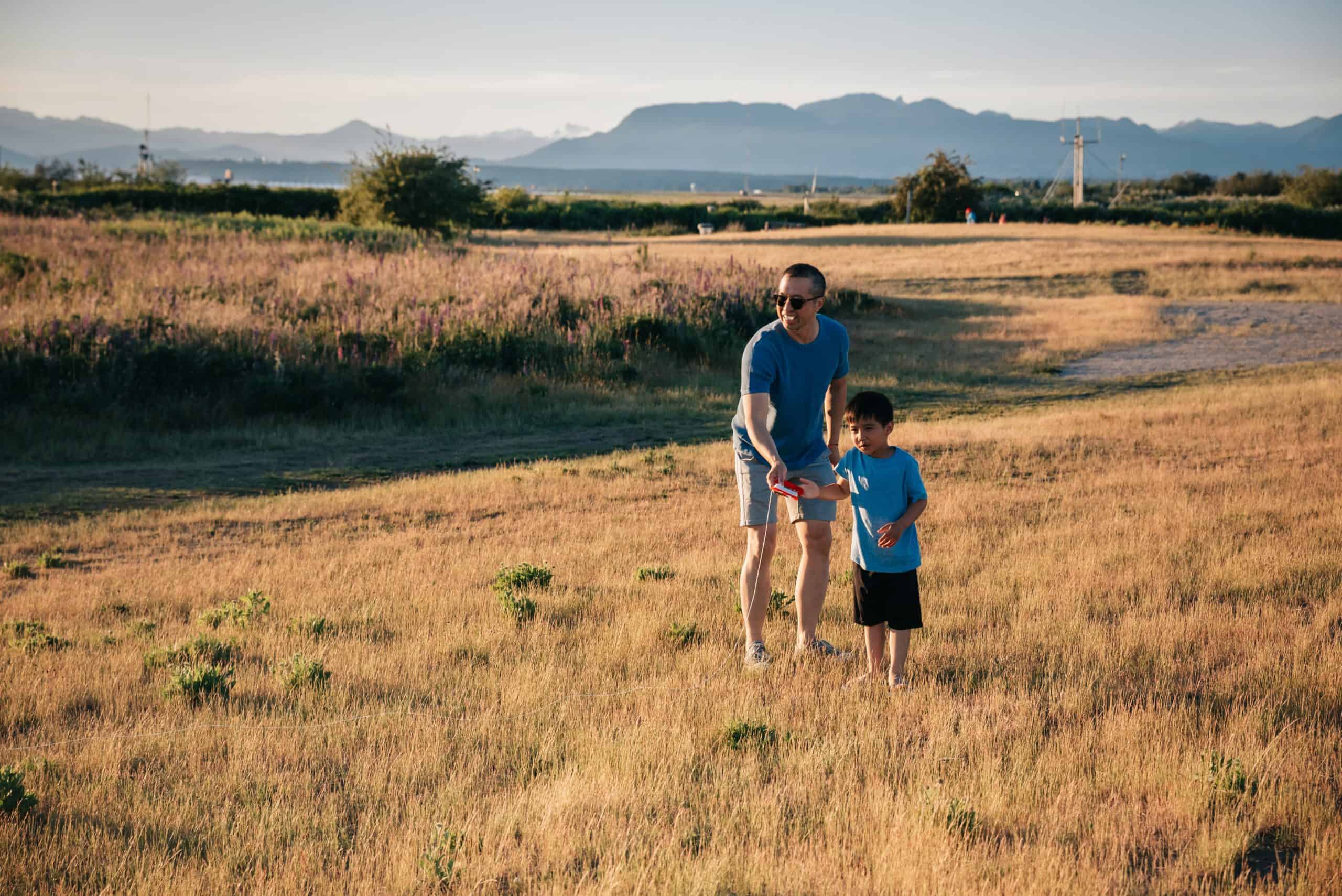
Effective Delegation: “Green and Clean”
I love how principles of business leadership can also be applied to families. Steve Covey gives many family examples in The 7 Habits of Highly Effective People. One of my favorite scenarios is with his seven-year-old son, Stephen. Covey uses the scene to point out the easier “go-fer” management versus the more effective stewardship delegation.
Covey’s family was deciding on tasks, and little Stephen said he would be in charge of the yard. Dad Covey walked around with him to be certain he understood the expectations: “Green and clean.” The idea was to water the lawn so it was as green as the neighbor’s, and clean up any papers, toy and junk. “Green and clean.” Dad Covey let Stephen know that the boy was in charge, and now his dad was only a helper. The boy had stewardship over that job.
Well, little Stephen did nothing over the weekend, and nothing on Monday. Dad Covey remembered, “Now it was Tuesday. Certainly he’d do it today. It was summertime. What else did he have to do? All day I could hardly wait to return home to see what happened. As I rounded the corner, I was met with the same picture I left that morning. And there was my son at the park across the street playing.”
At that point it would have been normal for any of us to pull the stewardship back onto us; after all, we knew what to do and we would get it done. But Dad Covey was more interested in teaching overall principles to his son. Somehow biting his tongue, Dad had little Stephen show him around the yard to see “how it’s going in your stewardship.” Finally young Stephen’s chin began to quiver, tears welled up in his eyes and he whimpered, “It’s so hard, Dad!” Dad Covey, the helper, asked how he could help his son. Young Stephen said, “Will you pick that stuff up?”—garbage from Saturday night’s barbecue. So, Dad did. Afterwards, Stephen only asked for help two or three more times that summer. At a young age, he was able to understand the principal of stewardship.
Often the most effective way takes more time initially, but reaps greater benefits ultimately. But man, Dad Covey, where were you when I was raising my children?!
Taken from The 7 Habits of Highly Effective People, pg. 174-178

Aura on Fire!
In an earlier blog I mentioned Auras being seen via Kirlian Photography. I also told how to see auras—yes, here and now, right now! It turns out that when we are giving service, when we are thinking of others, when we are loving and gracious, our aura is larger. When we are spiteful or selfish, it shrinks. I have a friend, Leigh, who used to see people’s auras in high school as she’d walk down the hall. She didn’t try for this; it was just a gift she was given. The auras of people who felt good about themselves and greeted other people extended up way beyond their physical head. The auras of people who were really down on themselves or dishonest didn’t even reach the top of their physical head. It got her into trouble on more than one occasion when a friend later said, “Hey, I said Hi to you, Leigh, and you didn’t even see me.” No, she didn’t see them. She was looking at something else!
Once I was at a church meeting where a man and his wife both spoke. Her aura was a lovely white, but his was lavender. I kept shaking my head and flicking my eyes to see if it would change, but it remained lavender. At the time I thought that lavender was a “muddying” of white, and therefore not as pristine or ‘good’. That didn’t make sense with what I was hearing and sensing from him, because the spirit I sensed from him was gracious and good, honorable and God-fearing. Later I found out that lavender is the color of someone who is extremely loving and giving. That matched with the spirit I felt from this man.
The most energetic aura I ever saw was at a national convention of singing teachers. The evening concert was held in Las Vegas in a large warehouse-type hall, and the winning singer was Robert Breault, a friend of mine from Utah. I had just taught a fellow teacher, Martha, how to see auras when we became separated. Each of us had to watch Robert perform from different areas in the hall. As I listened to his glorious, bell-like tenor voice, my eyes shifted, and I started seeing his aura. I allowed his dark hair and dark tuxedo to juxtapose the light that emanated from him. Soon I could see bursts of light shooting out from his body like the rays of a star. It was glorious! After the concert, Martha ran across the back of the warehouse and found me. “Did you see him?” she exulted. “He was on fire!” I knew then that she had seen what I had seen. From Scott’s Choice, page 119
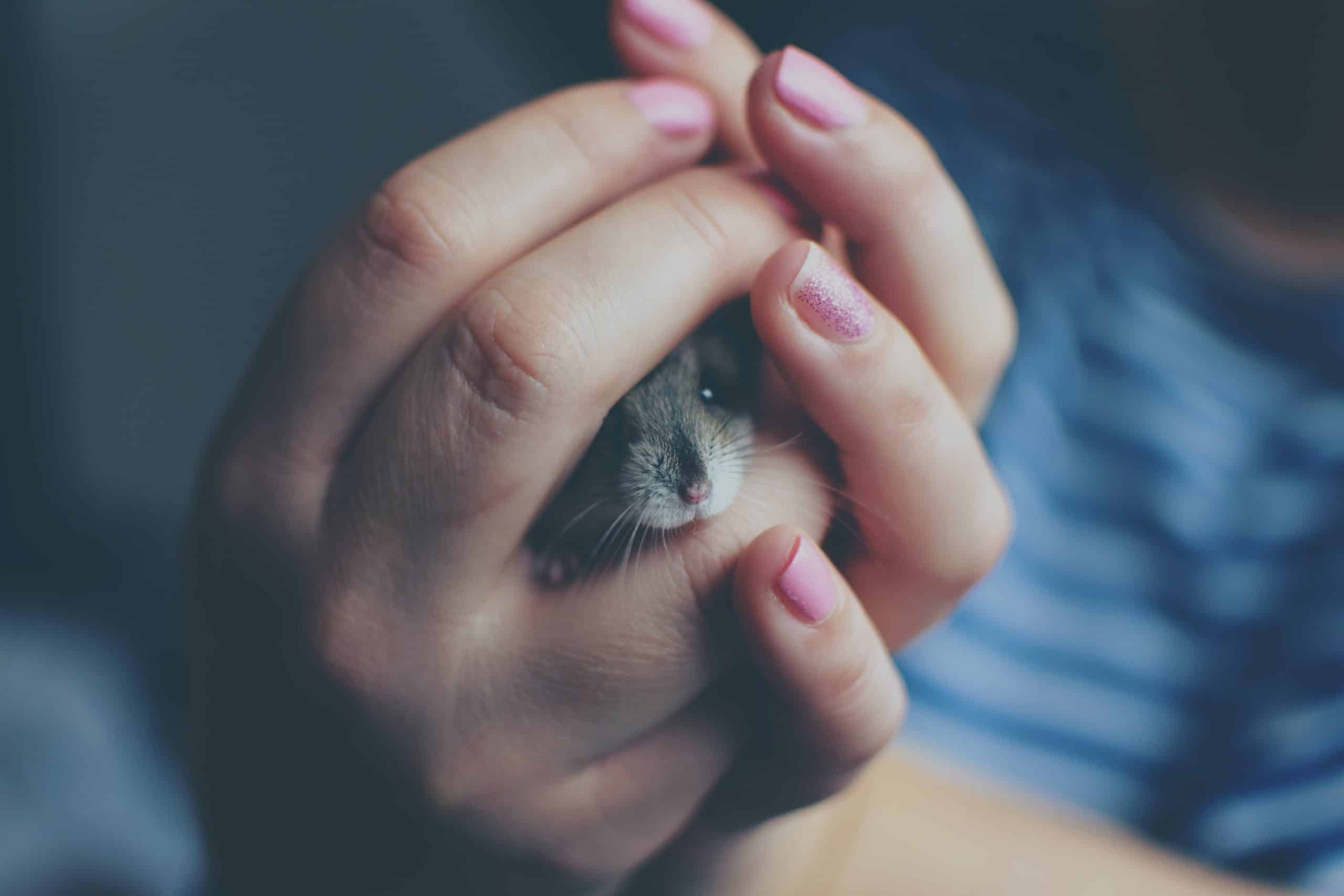
Honoring
Pendleton had died. It was cold outside; nevertheless, a tiny hole was dug under a mugo pine bush and Pendleton was wrapped in tissue and carefully held. Pendleton, a loved little hamster, would be buried where other gerbils and hamsters had already been buried.
Before he was placed in the ground, each of us went around in a circle and said something we remembered about Pendleton – his soft fur, his pretty color, how he’d cuddle, how he’d scamper, and how he’d grab on to a cracker so strongly with his teeth that his clawed feet would come off the table as we held the cracker aloft, doing a funny, dangling dance in the air. It was cold, and some in the circle had no coats, but we stayed.
Then we sang a hymn and said a prayer. Which song—A Mighty Fortress, Abide With Me, God Be With You Till We Meet Again—I don’t remember. But I remember the peace from the singing and the prayer, and the reverence and love directed toward one of God’s creatures. Then my son put an ever-burning LED light on the bush to mark his burying place. Every life deserves honoring.

7 Reasons for Hospice
Turns out he’s had stage 4 cancer for seven years, and he’s finally ready to turn in!
Here is the screenshot of his seven reasons for hospice.
I hope to honor him for caring about all of us to share his ideas.
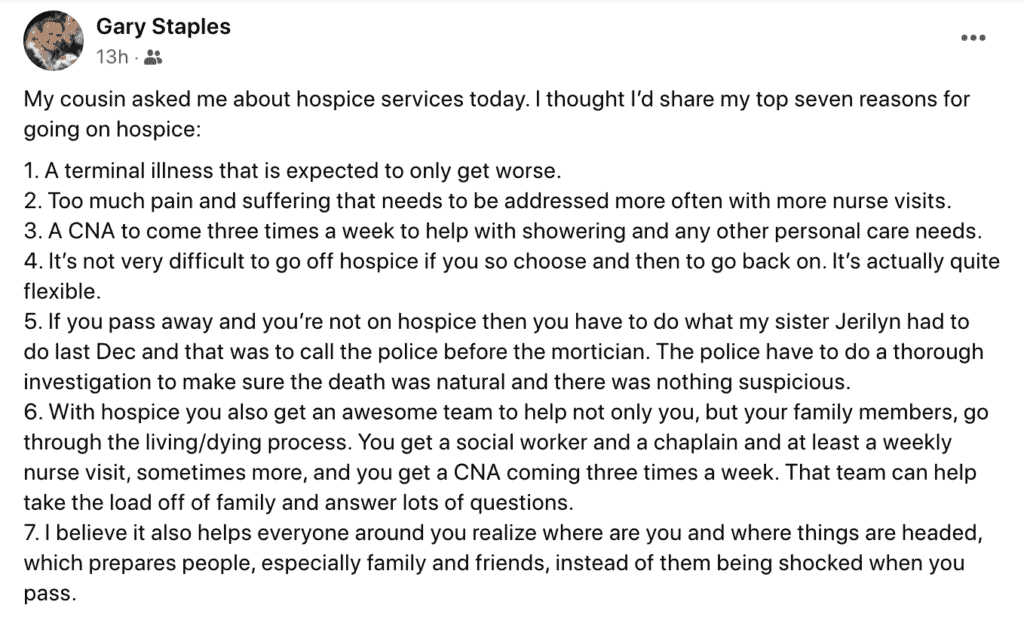

The Crazy Way We Think When Someone Dies
My sister-in-law’s 102-year-old mother died in the month of May. Boxes of her mother’s belongings were moved to my brother and sister-in-law’s, and they ended up right in the middle of their living room—literally stacked up about a foot from the ceiling! When my brother died suddenly the following January, my sister-in-law ducked her head and ruefully said, “Maybe he died to get away from the boxes.” That’s the kind of crazy way we think.
In my husband’s case, he was given a choice to live or die (read Scott’s Choice to learn about that). These things went through my brain: “Didn’t he want to be with me?” or “Was I too loud and did I get mad too easily?” or “Did he die so we could be rich from his life insurance?” (He always wanted to be a millionaire).
In the book Maybe a Fox by Kathi Appelt 11-year-old Jules frets over why she didn’t yell or scream loud enough for her sister Sylvie, or why she hadn’t held onto Sylvie’s hand tight enough. She tearfully told her father, “It’s my fault, Dad. I should have made her stay.” Her dad shook his head knowing that what happened was not Jules’ fault.
So, the answer is, no my brother didn’t die because boxes were piled up in his living room. And no, my husband didn’t die to make us rich. And no, Sylvie didn’t die because of Jules’ neglect. But those are the crazy things we think when someone dies. Especially children think this crazy way—that THEY are responsible.
Thinking this is normal, and that’s okay—for a minute. My brother, a doctor who was trained to handle emergencies, wouldn’t have died to get away from boxes. My husband, a man full of integrity, wouldn’t have died to cash in on life insurance money. And Sylvie wouldn’t have stopped running just to please Jules. We need to get past the crazy way we think when someone dies and realize that they died the same way they lived.
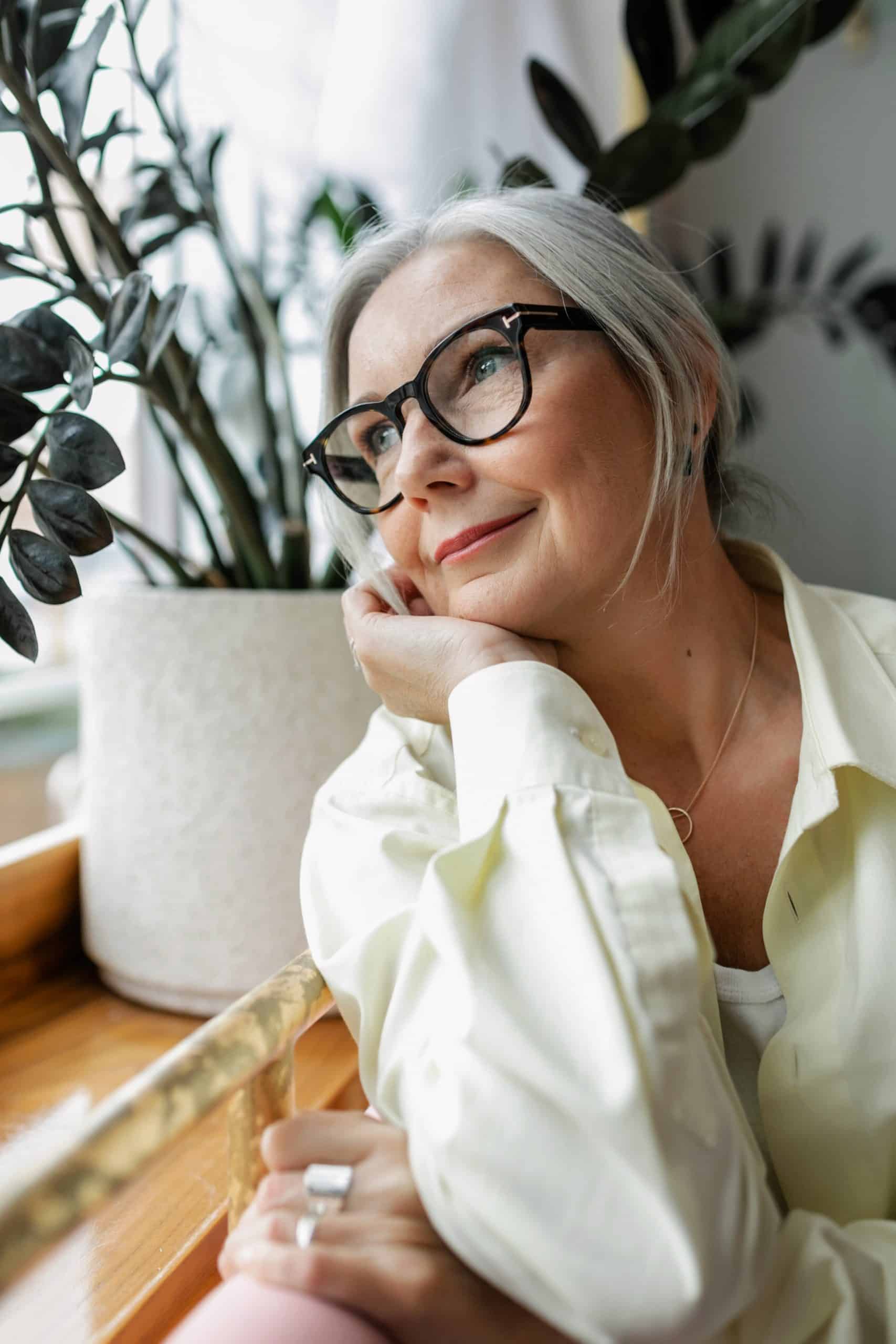
Information Given Internally or Through the Spirit
Internal Information
My husband and I with our three little children traveled back East for a year’s sabbatical. I was pregnant and huge and tired the whole way. In West Virginia our new doctor discovered that I wasn’t just having one—I was having twins! Ah, that’s why this ‘child’ never slept—there were two! I swear they took turns sleeping, so one was always awake! After I knew that there were two entities inside me, I could differentiate between them. One was pow-pow-pow! and one was stretchy and mellifluous. Later, one loved football and soccer and the other loved gymnastics and violin. Hm, what interesting internal information.
In the Bible, Isaac’s wife Rebekah also noticed a “struggle” within her. She went to the Lord with a question, “Why am I thus?” Genesis 25:23 reports, “And the Lord said unto her, ‘Two nations are in thy womb, and two manner of people. . . and the elder shall serve the younger.’ ” In Rebekah’s case, her information came in response to prayer. (No wonder when the sons later needed to be blessed, she devised a way to have Jacob, the younger, receive the main blessing).
Sometimes—during prayer, during meditation, standing at the bathroom sink, or just driving in the middle of the day—information from the Lord will come wrapped in a feeling or in a picture or in words. That happened when I was talking to my daughter-in-law on the phone just after my husband went to the emergency room and they had found a mass on his liver. In the middle of our conversation, the Lord’s Spirit said to my mind, “Scott will make a choice; once chosen, it will be irrevocable.” That information from the Lord charted the course Scott and I took, with me finding choices of treatment, and with him choosing which to do.
From Scott’s Choice pg 8

Auras & Kirlian Photography
“Energy is real. It’s just generally not seen.” Pg 118 – Scott’s Choice.
That was true until Semyon Kirlian created—in a serendipitous accident—an image using a photographic plate and a high-voltage source. Below are two pictures in Kirlian photography. The left is of a man. The right is of the same man standing on magnetic insoles. Notice the increased energy because of partnering with nature’s energy through his insoles.
Auras are energy that exudes from living beings, and they are generally not seen, either. My singing teacher showed me how to see them, though. “Look at the empty space between someone’s neck and shoulders and stare as if you were looking at a 3D picture. As the eyes readjust, you will start noticing a fuzzy light around the person’s head and upper body. This is more than the narrow half-inch strip of light refraction that the eye can normally see around objects.
“This fuzzy light will usually extend out from the person about three inches, for starters. As you keep focusing on the light, it may become a brighter haze, and it may reach farther out than three or four inches, particularly when the person seen is giving service or feels good about themself.” My teacher quoted a nurse who said she’d seen an aura arc all the way from the stage to the back of the hall when a fellow nurse was giving a lecture!
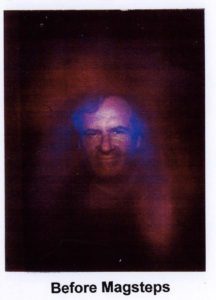
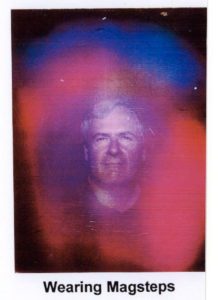

A Golden Light
Golden light is something that I have seen on certain special occasions. It always connotes the presence of God. Apparently, I am not the only person to see or sense a golden light. Betty Malz said, “The yellow light that appeared was dazzling.” And Jean Scott said, “There was . . . a warm golden light, very bright.” Raymond A. Moody, Jr., M.D., said in Life After Life, “There was a gold-looking light, everywhere. Beautiful. I couldn’t find a source anywhere. It was just all around.” (A Golden Light. Appendix p. 389)
The first time I remember a golden light was after my mother’s funeral. I noticed on the day after her funeral that the sky, the rooms, my world was “normal” again—a color that had more blue in it. Yet for three days everything surrounding her funeral—the people, the chapel where we celebrated her life in words and music, the graveside—had an amber tinge to it. And in that yellow-tinted glow, people were more genuine; they said, “I love you” more easily and hugged each other more readily and were really there for each other.
Thirty years later I saw this yellow glow in a small recording studio. My husband had recorded some Celtic hammered dulcimer music before he died, but a few of the passages needed editing. I had brought in another dulcimer player to repair little segments where his notes hadn’t been perfect, and our alternate player did a good job of fixing.
Now it was time for me to repair some spots on a dulcimer piece that I played. I had tried earlier to fix these spots, only to crash and burn. This was now the last song to be edited, and if I didn’t do a good job, we’d have to leave the song off the album. And I really wanted this song to be included. As I walked into that tiny space, a golden glow suffused the room—a gift that was not of my own choosing, asking or making. Somehow in that amber light, knowledge was given me that I would nail the song in no more than two takes. That helped me to take a breath, be calm, and approach my song with confidence that the job would get done. It did.
Betty Malz, My Glimpse of Eternity (Carmel: Guideposts, 1978), 87.
Lee Nelson quoting Jean Scott, Beyond the Veil (UT: Cedar Fort Inc.).
Raymond A. Moody, Jr., M.D., Life After Life (NY: Guideposts 1975), page 57.
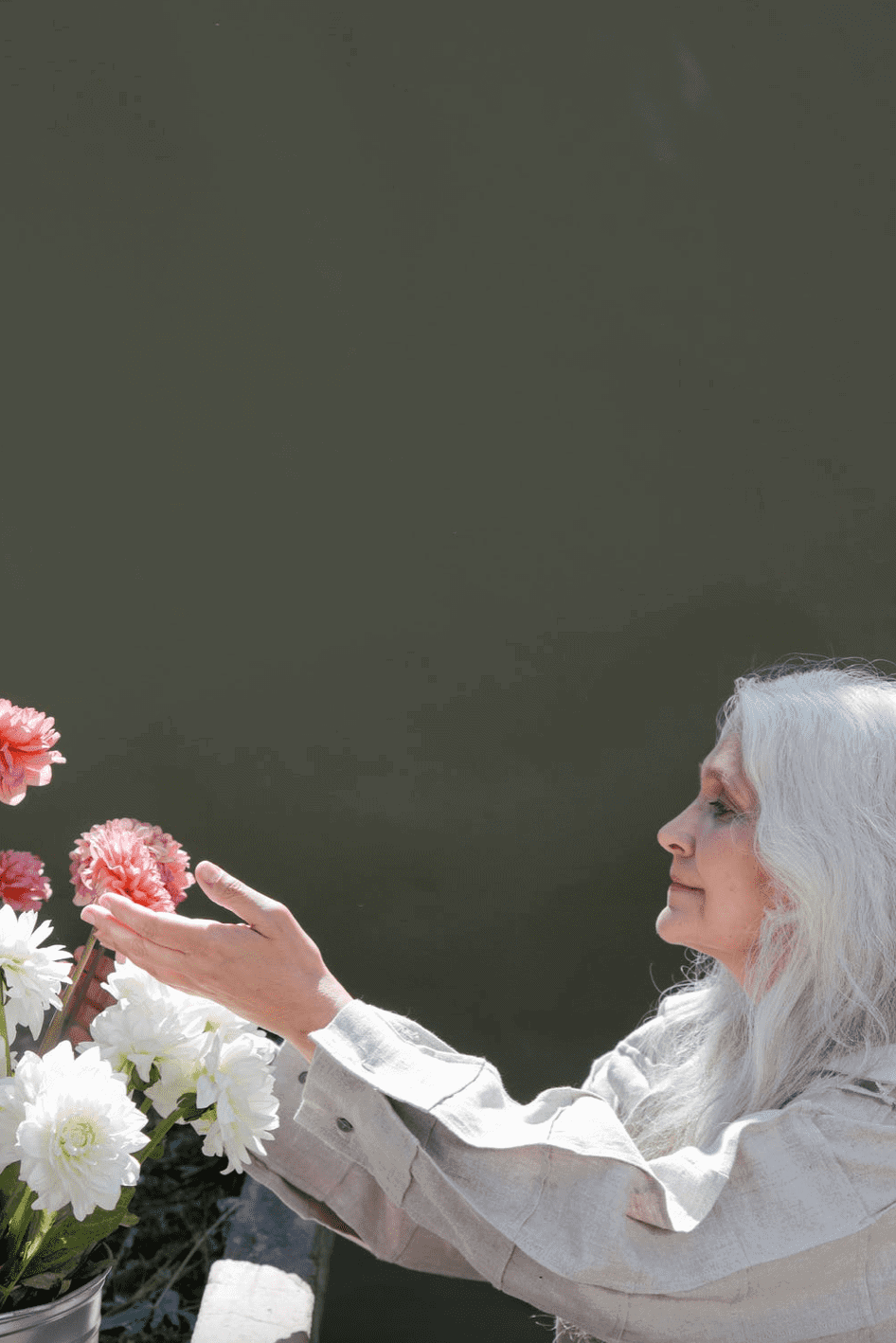
Two Different Things: Is it For Us or For Them?
I’ve been crying a lot this week following the death of my friend. I don’t know why, really. I’m happy that she is out of pain. She is healthy. She will never hurt again the way her cancer made her hurt for the last four years. So, I don’t know quite where this emotion is coming from. Another friend, Nina Walther, said that death is a sacred moment where eternity touches earth. I know that my brother-in-law—who saw his father-in-law die, breathing one moment and then just gone (gone!) the next—said with awe in his voice, “That was a sacred experience.”
When I was getting my Master’s degree, I was working on twenty Irish laments (songs sung in olden times during an Irish funeral or wake) to determine style. One afternoon, a stop sign emerged suddenly in the bright glare of the western afternoon sun. My husband stopped our old Winnebago faster than I had ever known it to stop. Standing in the aisle (yes, I wasn’t expecting a sudden stop) my outflung arms felt like they were being ripped off my shoulders. I sat in a heap on the floor after we stopped, groaning in agony. My daughter gave me aspirin, and while I waited the twenty minutes for it to kick in, one of the Irish laments-by Turlough O’Carolan- came to mind, so I started moaning it. It was successful! Somehow it dulled the pain. I decided to experiment with some of the other laments. None of them help alleviate my hurt, so I went back to intoning the first one—over and over and over until the aspirin dulled the pain.
That experience let me know that of all twenty, only one lament echoed the energy of real, deep-seated pain; all the others were for healthy people who were sad. And that’s a different thing. One was for the dead; all the others were for the living. So concerning my friend, am I sad for her, that she doesn’t get to experience earth life anymore? Or am I sad for myself, that I don’t have access to her ready friendship anymore? Those are two different things. I suspect it’s the latter.

Sivana East: “How Taking Care Of Your Health Involves More Than Just Your Body”
Here is a blog post I wrote from Sivana East. Check it out HERE: https://blog.sivanaspirit.com/mf-gn-care-of-your-health-involves-more-than-just-your-body/
Chris
I am pensive and tearful today, thinking about a good friend who died yesterday. Christine and I have been friends more years than I can remember. We played harp together, did programs together, shared health through Japanese Nikken together, and even went to Hawaii together. It is strange to think that she’s not here to talk to, to ask questions of, to get advice from. I always appreciated her good cheer, her grounded wisdom, and her unqualified acceptance of me and others. She loved God and she loved people. She was ALWAYS doing things for others. Always.
When someone leaves this world, it is an experience that leaves me in awe. They were here, and now they’re not. Chris died on the way to church. On Saturday, the day before, it was a ‘normal’ day (well, as normal as can be for someone who is badly hurting and so very, very ill). I had taken her to the bank, written checks for her, got her 3 cubes of ice, and rubbed her back. Now she’s gone. But I know she is still ‘there’ and she’s in a place where our spirits go when we leave our bodies on the earth. (As I mentioned in my book, Scott’s Choice, I have actually felt my husband’s hand, so I know for sure that his soul or spirit or essence still exists).
Chris is now out of the pain she was in for four years (never telling anyone of her struggle, just fighting it on her own, the way she lived her whole adult life). Now she can see her father and mother, Kira (for whom our harp album is named), countless others, and maybe even Turlough O’Carolan, the famous Irish harpist! And one of those standing in line to greet her will be my husband, with arms outstretched and a big grin on his face, welcoming her to the next stage of her life.

Health Magnets in the Fast Lane
Using health magnets to increase healing is like traveling in the fast lane. A freeway is slower in the right lane and faster in the left. Come on, do you really choose to stay in the right lane? Well, that’s one of the things health magnets do for the body—they help heal faster!
In Scott’s Choice, page 158, you see a picture of a bruise. I’m sorry it’s not in color, but that was the compromise I made with Amazon. Imagine a big, hunking, ugly bruise on a thigh (I bruise easily) and imagine a round health magnet placed in the center of the dark purpleness. You see that the center of the circle is light hued compared to the dark hues radiating out beyond the circle. What that shows is that the magnetic influence has affected the area under the circular magnet with faster healing. The magnetic influence (an effect created by our earth itself) hasn’t gotten to the outer edges yet.
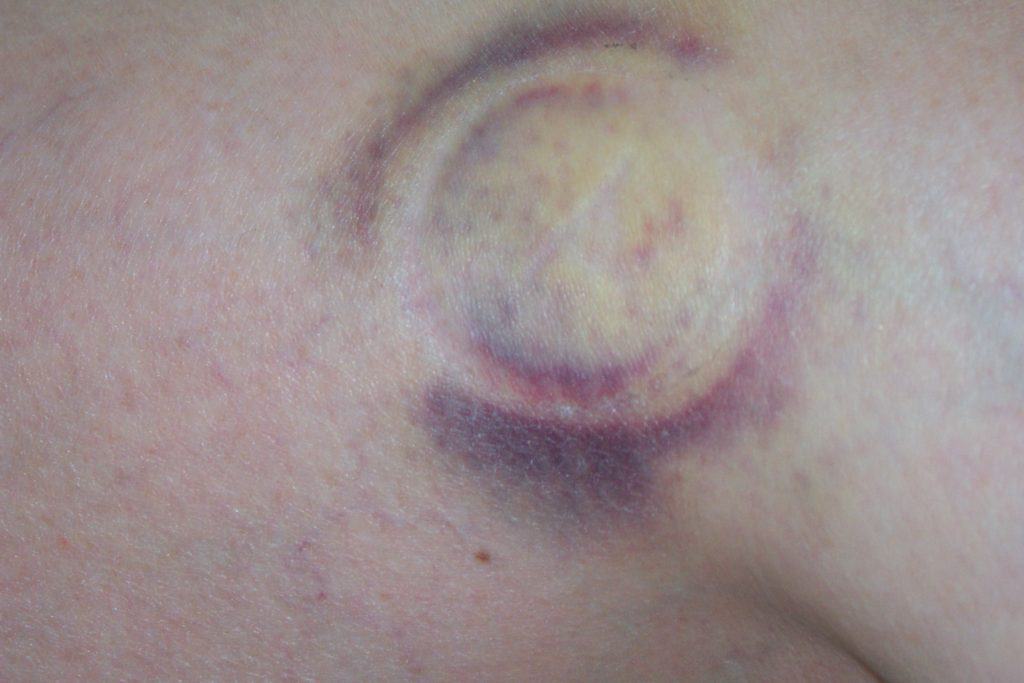
Sometimes the healing can actually come too quickly. I gave that same round magnet to a surgeon who had broken his arm. I figured he’d want to heal in three weeks compared to a normal six. For some reason the magnetism draws osteoblasts more quickly to the area needing repairing. But the quicker healing from the magnet irritated him, so he took the magnet off. And that’s the cool thing about magnets versus prescriptions: if it bothers you, take it off. Can you take off a drug once it’s in you?
See, the fast lane! As a nurse told me once, “The body is designed to heal itself.” That’s so cool!
But why wait when we can help the process along?
Health magnets in various sizes are available through uniqueTech.mynikken.com.

Zip! Zilch!
Some friends and I are in a business book club. We’ve been reading something that encourages you to think great things first thing in the morning so you’ll get your day off to a great start—things like an affirmation, a prayer, an inspirational quote, a meditation, or your mission statement.
When I woke this morning, I paused to see what my very first thought of the day was, and—wait for it—it was nothing. Blank slate. Absolutely blank. Nada. Zip. Zilch. The taxi left. I mean, there was nothing there! Does that mean I was destined to have a lousy day?
Sometimes we get so caught up, so invested in what others say—like in the book we’re reading, or like a podcast we’ve heard or in what new things we’re learning—that we feel if things don’t go according to those expectations, we are a failure. No! I am still the captain of my own soul, and I can make my own choices. Just because I didn’t have a fantastic first thought this morning, I can still have a fantastic day!
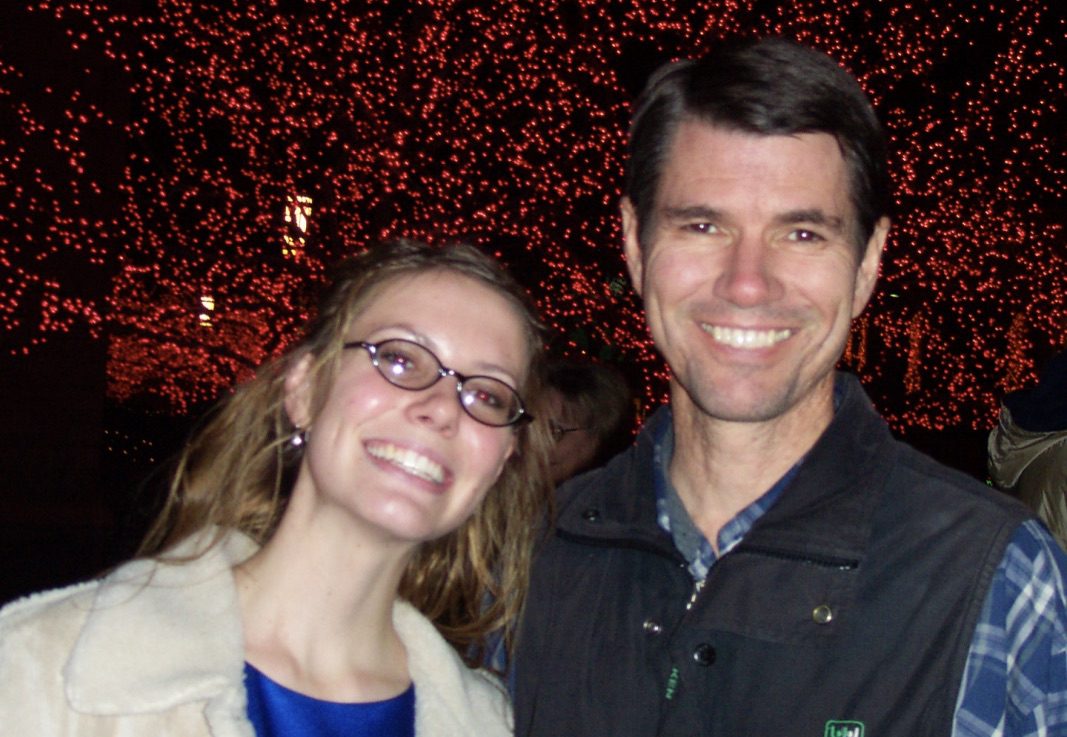
Dad—a Legacy of Love
Dad – a Legacy of Love
Receiving the dreaded call from our friend – the one that confirms our worst fears. My husband Matt had been with them at the hospital just the night before and we had been hopeful that things would improve. They didn’t. Driving back to the hospital all too soon. Each bump in the road sends a jolt through the lump already forming in my throat, threatening to release the torrent of tears that I’m desperately holding back. Seeing the happy, smiling faces in the lobby – they must not know what I know. Waiting for the elevator, afraid to speak or even look at my husband lest my carefully composed façade comes crumbling down. Walking down the long, cold corridor. I’m sure that in reality it is well lit, and temperature controlled, but all I can see is darkness, all I can feel is a tight, cold sensation wrapping around my chest. All-too-familiar emotions creep back to my memory and into my heart. The feelings of loss, instability, a wealth of sadness…
***
I. Love. You.
Many years ago, when I was 17 years old, these 3 words changed my life forever. A junior in high school, I kept myself busy with choir, dance, and my full school schedule that included several AP classes. AP chemistry was the worst. My dad had his PhD in Chemical Engineering and I had figured I would be a natural in chemistry. I wasn’t. In fact, I struggled so much in AP Chemistry that my teacher made an agreement with me that he would raise my class grade to match whatever I got on the AP test at the end of the year (a score of 5 would give me an A, 4 would give me a B, and 3 would give me a C). I think he mostly made the agreement in jest, but as I continued to struggle with this 7:30am AP class, obtaining a high score on the test became my only hope for salvaging my GPA. Since I clearly wasn’t a natural at chemistry, going to my dad seemed like the next logical step. ‘He’s a chemist,’ I thought to myself, ‘surely he can help me understand what in the world is going on in this class.’ Again, wrong. Apparently, AP chemistry was far too boring for Dad, so he glossed over the concepts I was struggling with and instead tried to move onto higher, more complicated concepts. I could feel my eyes glazing over and my brain shutting off as he rambled on and on using words I wasn’t even sure were English. We tried several sessions this way as I hunched over the kitchen counter with my textbook, trying desperately to get my brain to turn back on. Truthfully, I liked these sessions. We didn’t spend much time together, so even though I had no idea what Dad was saying, I liked that he was with me.
My focus snapped back, my brain suddenly on high alert. Dad had just uttered the words, “I love you.” Out of nowhere. I think for any teenager studying chemistry with their dad, this would seem out of place. But even more than that, Dad was not the type that EVER expressed his feelings out loud. Sure, I had letters from him that he had written on special occasions where he expressed his love, and I knew he loved me. But hearing it out loud? That just didn’t happen.
Caught off guard and feeling a little awkward, I tried to make a joke. “Are you dying?” I teased him. I expected a lighthearted laugh, a smile, a shy apology to explain why he suddenly blurted out his feelings. Anything to signal that he understood my joke. When his face remained serious, I knew something was wrong. The rest of the evening is a blur. It was cancer, he told me, and he didn’t know what would happen to him, to us. My only remaining memory after hearing those words is that of his strong hands stroking my long hair down my back while he held me tight, both of us silently crying. If the verbal expression of love was unusual, this physical expression of love was unheard of from Dad, but I clung to him like a baby koala bear, utterly in shock and unable to comprehend what this all meant.
Dad’s Work Ethic
It was no secret in our family that relationships with Dad were fairly strained. He ruled with an iron fist and had exceedingly high expectations of us all. Discipline and order were first and foremost in everything required of us. All six of us kids would joke with each other whenever someone was playing a video game or watching tv, putting on our best Dad voice, inquiring, “Have you done your homework? Did you do your piano practicing? Violin practicing? Did you complete all of your chores? Is your room clean?” There was always a litany of productive, orderly tasks that was expected of us before any enjoyment could be had. We learned very early on that as soon as you heard the garage door opening, you turned the tv off and ran to find something to do that would make it appear as if you had been working on something useful the entire time Dad was out of the house in order to avoid the inevitable lecture. He was loving, in his own way, but he expected perfection of everyone around him, himself included, and as we are imperfect beings, it meant that we were constantly disappointing him in one way or another.
By way of example, one of my chores as a teenager was to clean the kitchen countertops every night before bed. As a busy teenager there were nights I was so tired from the day’s activities and it was so late that the thought of cleaning the counters felt insurmountable. But don’t even think of going to bed without your chore done, because Dad does inspections! Each night he would inspect the countertops, pointing out all of the places I hadn’t cleaned well enough (side note, I’m a fantastic cleaner now). Dad had one rule for passing his inspection. Like my chemistry teacher, I think the rule was made as a joke originally. But he commented that I could pass his inspection if I was willing to lick up any gross things that he pointed out when I thought the cleaning was done. His intent, of course, was to demonstrate to me that if I’m not willing to lick the countertop I just cleaned, then I obviously didn’t clean it very well. One night when I was completely exhausted and just wanted to be in bed, Dad came to inspect my “cleaning.” I was tired, it was a rush job, and I knew it. Dad pointed to a fruit fly smushed on the counter – not just a crumb I left behind, an actual little insect. I was in a cheeky mood, so I lashed my tongue out and licked up that nasty little fruit fly before even so much as thinking it through. Then, knowing that I had fulfilled his rule, I skipped upstairs to bed. I think he was too surprised to try to stop me.
Dad’s Frugality
In addition to being very disciplined and orderly, Dad was…frugal, to put it nicely. Spending money was generally frowned upon, especially if it was something considered frivolous or unnecessary. He was the type of man that stayed the same size his entire adult life and therefore only purchased new clothing when his old clothing was threadbare (and even then I think he rebelled against the idea of having to spend money on something so silly as clothing). Eating out was a rarity, and on those infrequent occasions that we did eat out, it usually meant all 8 of us loaded into our big blue van at the McDonald’s drive-thru while Dad frantically ordered the cheapest menu item – one small burger per child. And I say frantic because that’s how he behaved, as if it was the most stressful thing in the world to have a car full of hungry kids while a tinny voice from a little mechanical box was saying things like “Can I take your order, sir?” or “Is that everything, sir?” or “Can you repeat that, sir?” I’m sure the total bill at the end of those McDonald’s trips seemed outrageously expensive to him, and meanwhile I’m equally certain that each one of us was still completely hungry after eating our burgers.
When cell phones were still somewhat new and text messaging was BRAND new, my dad had the latest, greatest cell phone – a cute tiny little brick phone by Nokia. I had some friends that had cell phones given to them by their parents, so I was eager to try out this new text messaging thing. I nabbed Dad’s phone at dinner one night and sent 10 messages to my best friend. Who knows what we even said, probably something completely pointless like, “Hey it’s Katie on my dad’s new phone, isn’t this cool?!” (I’m sure a sentence that long would have taken me at least several minutes to type out). Well, I can’t remember what I sent in those messages. But I remember that it was EXACTLY 10 messages that I sent. See, when text messaging was a new technology, there were no text messaging packages, no unlimited texting, nothing like that. Each text message at the time cost $0.10 to send (some companies would charge you $0.05 to send and $0.05 to receive, which just seemed dumb to have to pay if someone else was sending you a message and you had no choice but to receive the message). So, I had my fun sending the 10 messages. Not long after that, Dad got his cell phone bill in the mail. Sitting in my room one night, I heard Dad’s footsteps come down the hall and his firm KNOCK KNOCK KNOCK landed on my closed bedroom door. I opened the door. Holding his phone bill up in the air with one hand, Dad stuck his other hand out towards me and logically stated, “You owe me $1.00.” I remembered sending the messages and knew they cost money, so I knew immediately what the $1.00 was for. But in my teenage mind, I had sent only 10 messages precisely because I was trying to be smart with our money and not charge up a big bill – a dollar’s worth of messages didn’t seem like a big deal to an immature teenage mind. I just stared at my dad standing in my doorway. Several seconds passed as I waited for him to realize how funny it was that he was acting like charging an additional $1.00 to his phone bill was an egregious sin. When I could tell he saw no humor in the situation, I just smiled and said, “Okay Dad, hold on.” Fetching a dollar bill for him, I kind of laughed as I handed it to him, not understanding how he could be making such a big deal over a single dollar.
Thriftiness at the Fiddle Contest
My husband’s favorite story to illustrate Dad and his thriftiness is the morning Dad woke me up at 4am. It was a Saturday and I was a young teenager. Who in their right mind wakes up their teenager at 4am on a Saturday?! Without offering me the option to back out he said, “Get ready, we’re leaving right now to go to a Fiddle Contest in St. George.” St. George is about a 3.5-4-hour drive for us, so apparently the contest he wanted us to go to was starting that very morning and we had to leave NOW to get there. My older brother Matt was also dragged out of bed at that ungodly hour to get into the car. That made sense – Matt was an exceptional violinist and far better at fiddling than I ever would be, so I understood why Matt had to go, but I almost never did well in competitions so I didn’t understand why I had to go. Again, I wasn’t given a choice, I was given a command, so I got dressed and got into the car. I slept the whole way there and felt much better when we arrived around 8am, ready to register, get our numbers for the competition and then practice with Dad. He would accompany us on his guitar while we played fiddle, and he seemed to really enjoy it. As the youngest kid in the family I think I felt it was my duty to do things that I knew my parents enjoyed without too much fuss, so I decided this whole trip/contest was going to be fine. And I was right – this competition was special because both my brother and I placed. He won first place, as usual. In my memory I won second place. I don’t actually know if that’s true, but I do know I won some money – I think it was around $25. All in all, I was feeling great about having been dragged out of bed unexpectedly to drive to a competition 4 hours away. My confidence was boosted because I had done so well, and who doesn’t appreciate an extra $25? As soon as Matt and I received our winnings, Dad took us aside. “Okay, you guys need to pay me back for the registration fees required to enter the contest, and then I need you each to pay half of the gas that it took to drive down here, so you each owe me…[calculating in his head]…$10.” Okay, I don’t remember how much we ended up having to pay Dad out of our winnings to recoup his costs, but I remember instantly feeling deflated from that happy bubbly feeling I had after a successful morning. All these years later it’s a story that just makes me smile and it always gets a good laugh from anyone that hears it, but in the moment, I was furious that Dad had to always be so stingy with money.
My Irish Competition Dress and Sweatshirt
Understanding these facets of Dad is why one of my favorite memories of Dad happened in Idaho at a dance competition (yes, another competition!). Both my parents were musicians and wanted all of their kids to be musical as well, so in addition to taking a gazillion music lessons, my parents formed a family band and I spent my childhood touring around the United States playing music. Because we played Bluegrass and Irish music, my dad enrolled me Irish Step Dance lessons at a young age (along with a few American Clogging lessons), and he was my biggest supporter with dance. When I was 14, Utah hosted its first ever Irish Step Dance competition, and I was finally able to start competing, though opportunity was still somewhat limited around us. In the fall around my 16th or 17th birthday, Idaho hosted a competition and Dad agreed to drive me and mom so I could compete. Now, if you’re going to be in competitions, you need to have a real competition dress. And Irish Dance dresses do not come cheap – for a good dress you can usually expect to spend around $2000. Not only was Dad routinely frugal, but he had also lost his job when I was 11 years old and had only recently gotten a new job, so I knew that money for us was very tight. Up until that point I had used old and out of fashion dresses borrowed from my teachers, but I wanted one of my very own. My mom, along with Dad’s approval, worked very hard to bring that to fruition. We found a local seamstress, but it was her first time making an Irish Dance dress, and she didn’t quite understand how to accomplish its unique look with the short, stiff skirt and its stiff pleats. We didn’t end up having to pay what a seasoned Irish Dance dress maker charges, but it was still an expensive dress – around $1000. However, since she didn’t know how to make the skirt stiff and straight like it was supposed to be, my dress kept folding and rolling up and just not looking the way Irish Dance dresses were supposed to look. The night before my competition, Dad spent a lot of time trying to figure out how to get my dress to lie flat. We were staying at a stranger’s home in Idaho and he asked them for all sorts of heavy things that he could use around their house to lay on my dress to train it to stay flat. Even with that extra work, my dress never did lie flat or look right, but it touched me that Dad was so concerned about helping me.
The next day at my competition, Dad surprised me even more by doing something he NEVER did. He surprised me with a sweatshirt that had my name screen-printed on it. I was blown away. This is the guy that rarely took us to the movies, wouldn’t let us buy any concessions ever. The dad that insisted on coolers full of food so we wouldn’t have to spend money on fast food. The dad that bragged about the pants he’d been wearing for the last 25 years. The dad who made each of us kids track our car usage in a mileage book so he could charge us $0.10 per mile driven either by us or on our behalf (“Oh you need a ride to a friend’s house half a mile away? That’s a mile round trip, so that will cost you $0.10 to drop you off and another $0.10 if we have to pick up when you’re ready to come home.”). I couldn’t believe he had bought something so unnecessary, so frivolous, so obviously marked-up and over-priced just for me. Without me even asking for it. And the sad part was that his beautiful and spontaneous gift to me was ruined right from the start. Just as my expensive dance dress would never look right, this sweatshirt was marred. Whoever had done the silkscreen had left a piece of tape on the front, so there was a big tape-shaped mark on the front of the sweatshirt. We were so busy with the competition that it was too late to return it when we realized the error, and I could tell that it devastated Dad that his gift to me was not perfect. That weekend has become a sort of poetic beauty to me as the years have passed. Dad’s special gifts to me were imperfect – you could even say they were ruined. These gifts have come to symbolize that in the end, we had to accept each other as imperfect beings and focus on love instead. Love that we hadn’t been able to officially express before that night in the kitchen, studying chemistry together. Love bravely and unabashedly expressed, and my shameful response, “Are you dying?” – those words forever haunting me and living in the recesses of my mind.
***
Where Did My Dad Go?
I’m walking down the hospital corridor, clinging to my husband’s hand. In my mind I’m actually back in high school, on the stage practicing for tomorrow’s Prom Assembly. I’m in a daze throughout the practice, the events immediately beforehand on replay in my mind rather than focusing on the current rehearsal. My mom implores me to talk to Dad, to tell him that I need him to live and see me crowned as Prom Queen at this year’s Junior Prom. It’s Thursday evening and the dance is only 2 days away – surely he’s not doing so poorly that he will be gone before then. She says I need to give him something to live for. I walk over to his hospital bed, set up in our living room so he could be at home and comfortable while he continued his cancer treatments. I didn’t know at the time, but this is what it means to have someone in hospice care. Someone who is actively in the stages of dying but wishes to be in the comfort of their own home with their family. I didn’t know that’s what it meant to have that hospital bed taking over the living room. It’s only been about 4 or 5 months and already he doesn’t even look like Dad. His skin is sallow and sagging. Always a lean, trim man at 5’11’’ and 150 pounds, he’s now lost an incredible amount of weight and his skin appears to be barely hanging on his bones. His breath is labored and rattles when he breathes, and he’s barely conscious most of the time now. I’m ashamed to admit it, but it scares me to be around him. It scares me, because I should have seen the signs and should have done something, anything. Instead, I have ignored it, I’ve tried to shut it away and pretend that life is going to go back to normal. I still can remember the time I thought there was a ghost in my bedroom. It was the middle of the night, but Dad swopped in to save the day and showed me it was just the light coming through my small bathroom window and reflecting on the wall. I remember the baseball practices in our backyard where Dad would throw the ball as high as he could in the air to teach me how to catch a fly ball. I remember his brilliant intellect – all the times my siblings and I would be studying or practicing for exams and he always beat us to the punch with the answers on any subject. I remember the man who would spend hours teaching himself music and sitting with me to show me exactly how he wanted me to play the numbers we would perform with our family band. Who is this stranger lying on this bed? Where did my dad go? I reach out for his hand, thinking that if only he feels my touch he might perk up and respond to me. I almost recoil because I’m shocked by how icy his hand feels. He’s completely incoherent and it feels like he’s already gone, but I still talk to him. “Dad, please don’t die. Please get better. I need you to come see me in Promenade on Saturday… I love you Dad, please don’t leave me, I don’t want to be alone.” I cry, letting my tears fall on his frozen hand as I continue pleading with him to live, then I get up and leave to my assembly practice.
Terrified
I’m in the prom rehearsal, but my mind is having a difficult time reconciling what I see. My older sister and sister-in-law are suddenly there, at my school, walking down the auditorium aisle towards me as I stand frozen on the stage. I’m in such a haze that I can barely process what this inevitably means, but as I look back, I understand that there’s no good reason in the world why they would take the time to drive to the high school to pick me up right in the middle of a practice. Even if it should have been obvious to me, I can’t fathom the worst possibility because I had already determined the worst wouldn’t happen, couldn’t happen. And then, between seeing my sisters come down the aisle and walking up to my own front door, I don’t remember a single thing. They must have said something to me, they must have told me outright or at least given an indication. But when I look, there’s nothing there. No memories of walking to the car, no memories of climbing inside, buckling up, driving home – nothing. Nothing, that is, until I’m walking to the front door, terrified for the first time in my life of taking one small step into my own home. Terrified, because I know that once my eyes have confirmed what my mind and heart already know, there will be no turning back. Terrified, because a part of me thinks that if I don’t walk through that door, then it won’t be real, so how can I be expected to take that step?
“This Sucks.”
Back in the hospital, still walking down the corridor, I’m overcome by the memories that this walk is bringing, compounded by the sadness I feel for the family and loved ones we are about to see. We run into our friend, her eyes red and puffy from crying. All she can say as she hugs Matt is, “this sucks,” and I know exactly what she means. There’s no more concise way to put it. With all the knowledge, faith, and hope we have of the future and eternal families, it still doesn’t mean we’re not susceptible to the feelings that accompany such a massive loss; and yes, it sucks. As we continue walking down the corridor together, I see the door coming, and I know we must take that step to go in, as terrified as we may be.
She’s beautiful. Even in death, she is soft, peaceful, beautiful. As my mind races back through time, I can’t but help compare. Though it is clear her spirit has departed her mortal body, she still looks like herself, she’s still beautiful. But walking through my own door and seeing my own father lying there…thinking he looked beautiful and peaceful was far from my mind. Seeing him is the proof I didn’t want, the proof that everything has changed forever. Again, my memory has failed me. I remember walking through the door, remember seeing him there, remember thinking that it wasn’t him, couldn’t be him, because the father I grew up with had been vibrant, young, energetic, and full of life. Aside from that, however, there is nothing. No memories of who was present, no memories of what was said; I don’t even know if I touched him or not, it’s all gone.
I Long to take Away Their Pain.
Looking at the others in the hospital room, my heart hurts for them, longs to take their pain away. I have been there; I have walked down that path. But I don’t want anyone else to hurt the way I know they are hurting, especially because I don’t know how to help them. I can hardly look at them, knowing that I know exactly how they feel. Knowing that their lives have changed forever.
I’ve heard some people comment that time heals all wounds. I’ve heard others say that phrase is a bunch of baloney. My own feelings are that time is not a healer – time is merely a tool, and each of us handles the tool differently. Some seem to be able to use time to seek methods of healing and comfort while others somehow manage to freeze time such that they are forever stuck in the moment of time when their heart shattered, unable to move past or find healing and forgiveness. This is just my opinion, but I have observed it in others as well as experienced it myself. No matter how much time passes, I still fluctuate with moments where I feel confident and hopeful and energetic, while at other times I curl into the fetal position crying desperately for a dad that I no longer can see, touch, hear or feel. And it feels selfish, but each time a new tragedy is introduced in my life, such as this death of our friend’s mother, I feel forced to confront my own personal loss all over again. I keep hoping that one day I’ll have the magic bullet – the right words to say to someone experiencing loss, the right things to do to help them. But each time, I’m almost paralyzed by my empathy for them and the pain of my own loss all over again; often all I can say to them is, “This sucks.” For now, that will have to be adequate.
In the End, I WILL See Him Again.
This all happened many years ago, and even after all that time and having a husband and my own small family to take care of, the pain never fully goes away. I am human. I feel those human emotions of heartache, pain, hurt, anger. I felt like so much had been taken from me, waking every morning with a sudden jolt of realization that I was never going to see my dad again in this lifetime. But I think it’s okay to embrace the pain as it makes the sweet memories all the sweeter. And as dark as it gets some days, in the end it reminds me of the beautiful day that I will get to see him once more and will be able to feel those strong hands embrace me again. My mom has always believed that Dad made a choice to heal his spirit and move on to the next life. Well, I can make a choice as well, and I choose to look forward to the future with faith, hope and love. In doing so, I think Dad’s legacy can be spread to those around me – at least in some small way. And in the end, the legacy of love is all I’ve really ever needed.
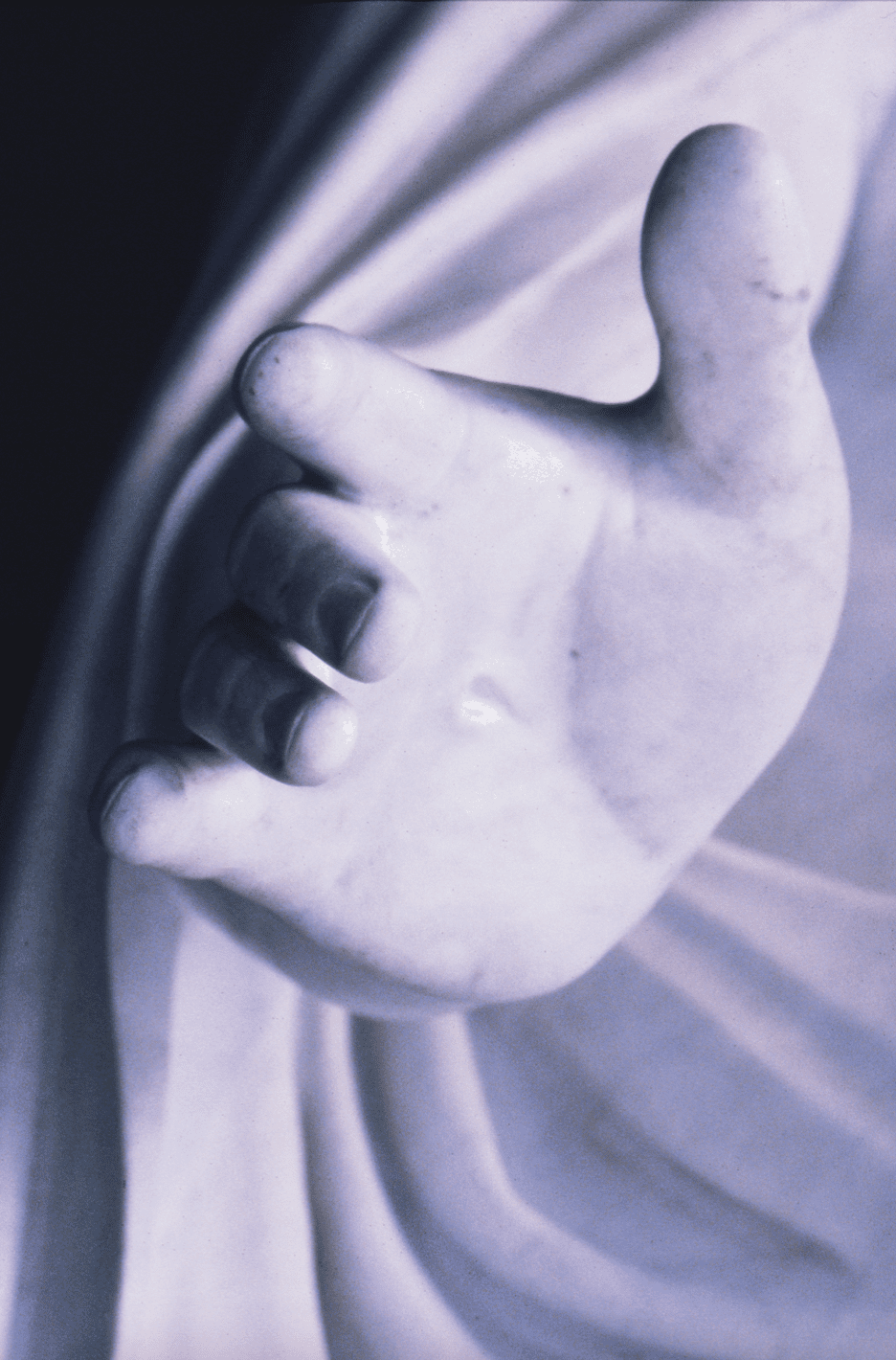
The Savior’s Mission
The Savior’s Mission as told by Stephen E. Robinson in Believing Christ
Romans 3:23 tells us, “For all have sinned, and come short of the glory of God” and author Stephen E. Robinson affirms bluntly: “I sin every day, and so do you. We fail to be perfect on a more or less regular basis . . . [and yet] we cannot be allowed to dwell in the presence of God, sinful and imperfect beings as we are.” This dichotomy—“the alienation of imperfect humans from their perfect God”—often causes distress, worry and anxiety, and sometimes even depression and hopelessness.
Robinson’s book shows that the “good news” that the angel shared at Christ’s birth was not merely that Christ had come, but that Christ himself was the means of bringing us back into alignment with God. “Though separated from God, there IS a way we can become one with him again.” This unifying or one-ment is called Jesus’s Atonement. Robinson further says, “Not only must we believe that he is who he says he is, we must also believe that he can do what he says he can do. We must not only believe in Christ, we must also believe Christ when he says he can clean us up and make us celestial.”
Some people “mistakenly feel that in order for the Atonement to work in their lives, they must first become perfect through their own efforts. To illustrate this misconception, Robinson shares the Parable of the Bicycle, something that happened in their family a few months before.
The Parable of the Bicycle
One afternoon after work as I sat reading the newspaper, our oldest daughter, Sarah, who was then seven years old, came up to me and said, “Daddy, can I get a bike? I’m the only kid in our neighborhood who doesn’t have a bike.” I mumbled some kind of general and nonspecific assent, but Sarah lifted up the paper and looked me in the eye. “How, and when?” she asked.
Now it would not have been easy for us financially to buy Sarah a bicycle at that particular time, so I tried to stall her. “I’ll tell you what, Sarah,” I said. “You save all your pennies, and pretty soon you’ll have enough for a bike.”
“OK,” she said, and she went away—I was off the hook. A few weeks went by, and I was once again sitting in my chair after work, reading the newspaper. This time I was aware of Sarah doing some chore for her mother and being paid for it. Then she went into her bedroom, and I heard a sound like “clink, clink.”
“Sarah, what are you doing?” I asked. She came out of her bedroom with a little jar in her hand. It had once been a maraschino cherry jar, but she had cleaned it up and cut a slot in the lid. On the bottom of the jar were a bunch of coins. Sarah showed me the jar and said, “You promised that if I saved all my pennies, pretty soon I’d have enough to get a bike. And Daddy, I’ve saved every single one!”
Well, she’s my daughter, and I love her. I hadn’t actually lied to her. If she saved all of her pennies, eventually she would have enough for a bike. But by then, she would probably want a car. In the meantime, sweet little Sarah was doing everything in her power to follow my instructions, but her needs were still not being met. I was overwhelmed. “OK, Sarah,” I said, “let’s go downtown and look at bikes.”
We went to every store in Williamsport. Finally, in one of the big discount stores, we found it: the Perfect Bicycle. From halfway across the store, she knew it was The One. She ran and jumped up on the bike and said, “Dad, this is it. This is just the one I want.” She was thrilled.
Then she noticed the price tag hanging down between the handlebars, and with a smile, she reached down and turned it over. At first she just stared at it; then the smile disappeared. Her face clouded up, and she started to cry. “Oh, Daddy,” she said in despair, “I’ll never have enough for a bicycle.” It was her first bitter dose of adult reality.
The bike, as I recall, cost over one hundred dollars. It was hopelessly beyond her means. But because Sara is my daughter and I love her, I have an interest in her happiness. So, I asked, “Sarah, how much money do you have?”
“Sixty-one cents,” she answered forlornly.
“Then I’ll tell you what, dear. Let’s try a different arrangement. You give me everything you’ve got, the whole sixty-one cents, and a hug and a kiss, and this bike is yours.”
Well, she’s never been stupid. She gave me a big hug and a kiss and handed over the sixty-one cents. (Then I had to drive home very slowly because she wouldn’t get off the bike!)
Robinson goes on, It occurred to me that this was a parable for the atonement of Christ. You see, we all want something desperately—we want the kingdom of God. But the horrible price—perfect performance—is hopelessly beyond our means. At some point in our spiritual progress, we realize what the full price of admission into that kingdom is, and we also realize that we cannot pay it. And then we despair…Only then can we fully appreciate the One who comes to save.
At that point, the Savior steps in and says, “So you’ve done all you can do, but it’s not enough. Well, don’t despair. I’ll tell you what, let’s try a different arrangement. How much do you have? How much can fairly be expected of you? You give me exactly that much (the whole sixty-one cents) and do all you can do, and I will provide the rest for now. You give me all you’ve got and a hug and a kiss (that is, make this a personal relationship), and the kingdom is yours! Perfection will still be our ultimate goal, but until you can get it on your own, I’ll let you use mine. What do you say? Between the two of us, we’ll have it all covered. You will be one hundred percent justified.” Believing Christ (Deseret Book, SLC, 1992), 2-33

Sheet Music
Songs by
Elaine C. Brewster
Feel free to use for non-commercial use.
Sacred Music
- Coventry Carol, arranged
- Man From Galilee
- Now Let Us Rejoice, arr.
- A Picture of the Temple
- We Talk of Christ
- Welcome, Welcome
- The Word of God is Like a Seed
Secular Music
- Garage Sale Song
- Here In Weiser
- The Last One in the Bath
- Life Was Hard for Grandpa Samuel
- Little Bit of Grass
- A Little Building
- The Mail Must Go Through
- The Old Pony Trail
- On the Back Porch
- Running in My Mind
- The Useful Apron
- What’ll We Do With the Baby?, arranged

Advocate for the Arts

Navigating the grieving process
Navigating the Grieving Process: How to Find Strength When the Death of a Loved One is Inevitable
My husband, Scott, was an expert storyteller. His stories were legendary. As a family, we had created a Celtic music CD recording in a studio, but in all of the time we spent in the studio, we never thought to have him record his stories. It wasn’t until five months after his death, when I was outside raking, and I thought, I will never hear his stories again.
It was devastating. It was final. It was unfathomable.
The word “never” is the thing that will make you lose all hope. It was a big thing for me in my grieving process to not let myself say the word “never.” “Never” is a truly detrimental word.
But then I realized, Yes, I will hear them again. Just not for a while. I will because he’s going to be resurrected, and so will I. I will see him again, and when I do, his stories will be even better than when he left.
Having the belief in a life after death, in the idea that our souls are eternal, separate from our bodies, and that our love for another transcends the physical body brought me the strength and courage to move on when I lost my other half.
Death Does Not Have to be Desolate
How one experiences grief revolves around the Savior, Jesus Christ. If you believe that once a person dies, their whole essence is gone, that they exist nowhere and you’ll never see them again, that will cause you to feel utter and complete despair. But if you have a belief that the spirit lives on, you will not be so desolate. If you have a belief in the resurrection and that a person’s spirit can be joined with yours at a future time, it takes away the sting of death.
My neighbor was in her fifties when her twenty-something year old daughter died. She was so despondent because, as far as she knew, her daughter was wiped out, like she had never existed. The woman was so distraught that she pulled the blinds down and she wouldn’t answer the door. I just wanted to grieve with her. I wanted to hold her hand and hug her, but she wouldn’t let anyone in because her belief system left her desolate.
When it comes down to death, the rubber meets the road. It isn’t Buddha who died for us, and it isn’t Hinduism that will save us. There was only one person who made resurrection possible. So when you talk about death and how to process grief, we have to talk about the Savior.
Stop Blaming Yourself
Another part of the grieving process is asking yourself, Why did he die? Did he want to get away from this life? Is there something I did that made him give up on living? Every single person I’ve talked to who has lost a loved one and has asked themself these questions.
I may not be the easiest person to live with. I feel the need to be in charge, and I used to get mad pretty easily (I would at times use my loud, soprano singing voice for yelling). I considered these foibles of mine and thought, Did he die because he wanted to get away from me?
You think through all of those horrible, self-deprecating questions, blaming yourself for why they seemingly “gave up on life.” You’re trying to figure out what you did, what you could have done, or if you could have done more. But what I finally came to realize is:
Their choice has nothing to do with you. People die the way they live, from their choices and their beliefs, and you play no role in either.
You’ll Make it Through the Loneliness
The most difficult part of the grieving I found is the feeling of loneliness. My husband has been gone for 18 years, and I still miss him every night. But when he first passed, a neighbor of mine (whose husband had also died) said it helps to have a stuffed animal in bed with you, something to, even minutely, fill the empty space next to you.
So when I was grieving, I found this puppet. He was a bear whom I named Abraham. I would keep Abraham by me and he made me really happy. Then after about five months, I didn’t need him anymore. I was finally able to accept that this was my new life.
Another way to move beyond loneliness and embrace joy is to let other people share their stories about your loved one with you. It’s comforting to most people when others remember their loved ones. I love it when people say nice things about my husband, and they still do 19 years later. I still have the sympathy cards I received, and almost every card said at least two nice things about him. “Oh, he was so energetic and I loved his stories.”
So after I read all of these sympathy cards, it gives me a real feeling for how they saw this lovely man and the impact he made on others, not just me.
You Just Can’t See Them
If you read books on near-death experiences, you’ll learn that souls don’t like being called “dead” because to them, they’re not dead. They’re very much alive. They just exist in a different space. A friend’s mother believed that death was the end. Kaput. Done. Gone. But after she died, the mother’s spirit appeared to her granddaughter and said, “Oh, sh…! I was wrong!”
I look at death the way it felt when my husband would have a work trip to Japan. He would be gone for a week or two, halfway across the world. In those days we didn’t have cell phones, and he would only call me maybe once or twice during that time. But I assumed that he was well and busy and doing things where he was, just as I was well and busy and doing things here at home.
I feel that now he is simply in another sphere, busy and doing things that make him happy, while I am here at home busy and doing things that help me grow. And just like I waited for the plane to bring him back to me, I now wait patiently for the Resurrection, which will bring his body back to his spirit.
Life isn’t designed for us to be sad. Life isn’t designed for us to be heavy when it gets too much. We’ve got to let go of grief and let life move on. Enjoy the new grandbaby. Enjoy the new flowers that are coming. Everyone comes to terms with death on their own time schedule, but we need to keep enjoying the things life brings us.
Your life doesn’t end because your loved one’s did. You have so much to look forward to, and your loved one wants you to enjoy every moment until you are both in the same space again.
For more advice on how to keep your strength after the death of your loved one, you can find Scott’s Choice: Letting Go, Letting God on Amazon.
Elaine Brewster walked by her husband’s side every step of the way throughout his long road to spiritual healing. Several times, she witnessed him come out of a deep sleep, his eyes flying wide as he exclaimed, “I think I signed up for this!” As someone who has long been open to universal energies, Elaine knew from the beginning that Scott would make a choice, and that, once made, that choice would be irrevocable. From his choice to heal, to his ultimate decision to let go, Scott’s Choice: Letting Go, Letting God is her loving chronicle of their journey together.

When all is not lost
How to Find Positivity, Hope and Blessings even During Hardships
All is Not Lost: How to Find Positivity and Hope While Battling Chronic Illness or Other Health Issues
When you find out that your loved one is diagnosed with a chronic illness, it feels like the world disintegrates around you. The floor disappears under your feet, the walls float off into space, the air even seems to rush out of your lungs. I understand the feeling. I experienced the same feelings when we found out that my husband, Scott, had a “something” on his liver.
Being a thorough person, my husband wanted to explore every avenue that might heal him. We went to all the appointments that would be expected in our western healthcare system, such as MRIs, CT scans, and biopsies. But Scott also had us investigate methods of healing that were from the natural or eastern-oriented sector, such as Reiki, bio-feedback and Cesium High pH Therapy.
The western world only offered three things for cancer treatment: chemo, radiation and surgery. And the hope they gave seemed more like dogged determination than real hope. Besides, I could read between the lines: there really wasn’t hope for him with just these methods. Practitioners in the eastern or holistic sector, however, were forward-thinking, positive, and busy putting one foot in front of the other. And they had many treatment choices, not just three.
So, during this time where we found—in holistic healing—a promise of life lived outside of a hospital bed, there were three factors that gave us optimism and aspiration: connecting with people, integrative health, and God.
Build Your Connections
Some of your connections will hopefully be family and friends that you can depend on during this unbelievably difficult time. Our neighbors and family were an enormous support! Just like it “takes a village” to raise a child, it took a village to sustain me and Scott during this horrendously trying time. Their care lightened us and gave us the feeling that things would be OK.
A word of caution: while it is important to have people in your corner, it’s just as important to be mindful of who your supporters are. Some people support by being so overly concerned that they end up exuding fear and negativism. Their lower vibrations really do affect your energy. So limit your time with these people, for your own self-care and that of your sick loved one.
At the time we found out that Scott had a problem, I was involved with an alternative care company. I was connected with people—nationwide—who each had their own network of integrative practitioners. These people became the network I relied on for additional treatments. I was so new in the holistic world that I didn’t even know the titles to ask for. I just trusted that these people knew more than I did, and that allowed me to follow lead after lead.
If you don’t have any kind of alternative care network yet, a good place to start is at your local health food store. Ask them about their resources. Just like there are groups of people who love sailboats, or who collect gems or antique guns, there are groups of people who know about muscle testing, releasing trapped emotions or looking at the person as a whole: body-mind-spirit, instead of isolating or looking only at the physical body structure.
Know Your Options
One of the beauties of working with the holistic or integrative sector of healthcare is their positive outlook. I couldn’t help but notice the difference between the two floors of our local hospital: the floor that offered surgeries was quite energetic and happy, because people get better from surgeries. The floor that housed cancer patients was somber and sad because people die from cancer.
I have heard from so many people in just the last month who were told something like, “He’s only got three months.” This squashes hope. Often patients and family stop right there. They don’t look elsewhere; why should they bother? The doctor—the knowledgeable one, the one who makes decisions—already said, “There is no hope.” (And according to the treatments available in the western method, they are absolutely right).
But for those willing to look outside standard western methods, there is still hope, maybe because they have many more options from which to choose. The Immune Therapy Center in Tijuana currently has 25 methods. I much prefer the energetic gleam in their eye from a hopeful approach than the deadened, glazed glance that skirts over a person who is already considered dead via western choices.
Another reason for the hopeful attitude of integrative practitioners is that they recognize that our physical health is tied to our emotions. And if our feelings and emotions can change, the health surrounding the areas that house our emotions can change too. That’s what they do in looking at the whole mind-body-spirit. They take the whole person into consideration, and when that occurs, miracles can happen.
Believe in God
Which leads to point number three: God.
From the beginning, Scott and I tried following the inspiration we felt came from God. Every day we did what we felt God’s spirit led us to do: call this facility, talk to that person, or find this link online. In fact, I was led to find one of our main energy workers because I was at the natural health food store, and I saw a sign about a class she was giving. I attended that class, which led to her coming to help us, which led to our going to The Optimum Health Institute in California, and that led to our going to a natural cancer clinic in Mexico. All from a sign at the health food store I noticed when buying organic veggies.
Feeling open to God’s spirit and inspiration is part of feeling supported by God. The other part is just believing in God himself. Stephen E. Robinson has a book called “Believing Christ” and he points out, “[People] believe in Christ, but they do not believe Christ.” (pg 9, Believing Christ, Deseret Book, SLC 1992). One way of putting that is that we are happy to think of the “good news” of the gospel, but we don’t think it applies to us personally.
For me, believing in God—that through Jesus my husband and I will both be resurrected, that God knows me, that God loves me and God always wants what’s best for me—that gets me through the hard times. Among many beautiful truths in the world, the bottom line is that Jesus died for me so I can live again. Jesus is the only one who did that, and that changes my life. That gives me perspective and hope for the future. Feeling supported by God and knowing there is more to His plan than I fathomed helped me to understand Scott’s choice and find peace with it.
Finding the Silver Lining
My daughter-in-law and I have both had a thyroidectomy. It’s a surgery that can destroy the vocal cords (thus the ability to speak), create ugly visible red marks on the neck, and even cause death. Both of us though, in our own ways, approached the surgery by looking to the future. “When I get better I will…” and “In the future I will…” Hope in the future is the silver lining. And amazingly, when your mind is on that trajectory, your health often follows the same path.
This kind of thinking goes even beyond a silver lining. It’s about finding positivity and hope, even when battling something devastating like a chronic illness. It’s training your brain to expect the best outcome, and never settling for less than. And the best way to keep this positivity and hope is to look outside of what you know, hold those you can depend on close, and trust that God has a plan that exceeds our expectations.
For more advice on how to remain hopeful despite adversity, you can find Scott’s Choice: Letting Go, Letting God on Amazon.
Elaine Brewster walked by her husband’s side every step of the way throughout his long road to spiritual healing. Several times, she witnessed him come out of a deep sleep, his eyes flying wide as he exclaimed, “I think I signed up for this!” As someone who has long been open to universal energies, Elaine knew from the beginning that Scott would make a choice, and that, once made, that choice would be irrevocable. From his choice to heal, to his ultimate decision to let go, Scott’s Choice: Letting Go, Letting God is her loving chronicle of their journey together.




